Career Profiles
Just because you don’t put the seed in the ground doesn’t mean your future career isn’t part of the corn industry. From biotechnology to finance to livestock, corn plays a central role in many different career paths. Professionals from the corn industry share their careers here. Simply choose a field of interest and read the profiles highlighting that person’s career path and advice for college students.
Career Profiles
Agronomy and Plant Sciences
Those in the agronomy field typically hold positions such as crop consultant, sales representative, educator, research scientist and production agronomist. They often work for seed companies, research and extension, government agencies, cooperative services and crop protection companies.
They often specialize in areas such as soil, water, plants, environment, genetics and weed sciences. Common degrees in this field include agronomy, horticulture, biology, or other sciences.
-
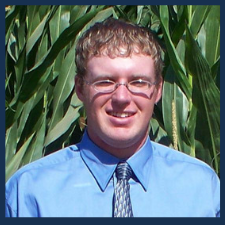 close
closeLucas Haag
Education
Kansas State University, B.S. Agricultural Technology Management
Kansas State University, M.S. Agronomy
Kansas State University, PhD. Agronomy with emphasis in crop ecology
Job Overview
I serve as the Northwest Area Agronomist for K-State Research and Extension. I provide leadership for extension agronomy efforts in the 26 county areas in northwest and north-central Kansas. I work with producers, industry people and our local agents in being proactive in educating about current issues we see in crop production. One of the unique things about my job is I’m in a 100% extension appointment, but with that I do a fair bit of applied research. Predominately my work is in corn, wheat, sorghum and emerging crops in the northwest area, such as field peas.
Most Beneficial Class
The three most beneficial classes for me were:
Intro to Ag Economics because having an understanding of what drives producers to grow a certain crop and knowing how microeconomics plays a role in how producers make decisions is important.
On the machinery classes I enjoyed the overall machinery systems design class. It was really good from a technical stand point.
A natural resource economics class we analyzed water issues in western Kansas and put economics into the conservation management plan.
What class do you wish you would have taken?
I was able to sneak through grad school without taking biochemistry and I wish I would have actually taken that. We do a lot in terms of understanding plant water stress or heat stress, I have training in the physiology, but it would be helpful to have a better understanding of the biochemistry involved.
Career Path
Throughout pursuing my undergrad, I helped pay for school by selling seed corn. Then I worked as a graduate research assistant during graduate school. After my Master’s degree I worked for three years full time at the Tribune research station as the assistant scientist. I was managing trials and running field research on both dryland and irrigated cropland. As I was finishing my Ph.D. I applied for this job and got it. I’m also still highly involved in my family’s farming and ranching operation.
Advice for Students
My piece of advice for college students would be don’t be afraid to take some coursework that’s a little bit outside of what you’re wanting or what your normal interests are. What I’ve learned is there’s other things you can learn from other industries or other segments of the ag industry.
-
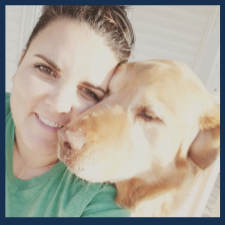 close
closeCammie Vaupel
Education
Kansas State University, B.S. Agronomy specialty in consulting and production, minor in agricultural economics
Job overview
Agronomist, Great Bend Coop
I started in this position immediately after college and have been here for 11 years. In general, I am responsible for working directly with customers to scout all crops and to assist with sale of fertilizer and chemical products. The Coop contracts with customers to have a set number of acres scouted and we work each week to make sure we are visually inspecting those acres during the growing season. I also assist producers in filling out and navigating NRCS paper work for various support programs.
Most Beneficial Class
I use what I learned in the courses related to crop growth and development every day. When scouting acres, I need to be able to quickly recognize key parts of the plant and know if it looks correct and healthy.
My Weed and Seed Identification class was also important. It gave me a solid base for beginning to apply what I learned in the classroom out in the field where you really start to understand agronomy. I still refer back to books and other resources from college.
What classes do you wish you would have taken?
Precision agriculture continues to grow. I did take some classes in this area related to irrigation technology, but it is the way of the future and KSU offers many more classes in this specialty now.
I switched my major fairly early from Elementary Education to Agronomy. My agronomy position is a good fit, because I still really enjoy education, but farmers are my “students”. The single purpose of my social media presence is to relay information to help growers. So, communication classes are important too.
I was really glad that I decided to obtain a minor in Agricultural Economics. It has helped me better understand the marketing side of the crop industry.
Career Path
My internship during college involved working as a consulting agronomist. I enjoyed that, but I wasn’t sure that was exactly where I fit. Previously I had worked as temporary scale help for a coop during several summers. Through that experience, I gained a strong mentor. He really believed in the cooperative business model. Because of that I started looking that direction and went to work for the cooperative where I had experience and then moved to my current employer.
Average Day
Summer and winter are very different.
In the summer, I leave home as early as I can to beat the heat. Scouting begins a little after sun up and then writing and delivering customer reports happens in the afternoon. I usually plan out my week so I can coordinate my travel in one area for the same day. I use a four-wheeler a great deal and my pickup is often my office for a big part of the summer. At the end of the day, I am in the office turning in work orders.
During the winter, I’m in the office more and that is when we do our educational programs for growers, help them with farm plans, set schedules, and assist with pre-pay on chemicals. I also attend lots of meetings. Sometimes to keep current and learn some new things and often to meet with vendor reps. Winter is when I have time for a few days off.
What do you wish you would have known?
I did not grow up on a farm and that would have been helpful, but it isn’t an issue. As I noted above, I really wish I had more precision agriculture knowledge. With agronomy, there is always going to be a new challenge. You have to be continuously learning. There will not be the same year twice so you have to be ready to solve new problems. That can be frustrating, but it is also interesting.
Advice for Students
My first recommendation would be do as many internships as you can with several companies.
Secondly, build your network. While you are in school, get involved in clubs and meet people in other majors.
Finally, don’t be afraid to ask questions, keep learning, be willing to put the work in to find the answer to the question.
-
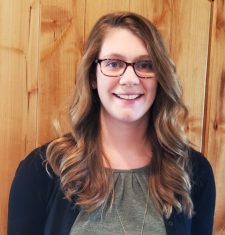 close
closeMichelle Busch
Education
Kansas State University B.S. Agronomy, soil and environmental science option
Secondary Major in Natural Resources and Environmental Sciences
Job Overview
I am a Retail Representative for Syngenta Crop Protection. There are two major parts to my job: agronomic support and business/sales support. Three to four days a week, I am out talking to my retailers. It’s my job to be the local expert for them and make sure they’re positioning our products for success on the ground. That means I’m determining the right product for the target (crop, weeds, disease pressure, soil type, etc.), the right rate, right timing, right tank-mix partners, or even the right equipment. One to two days a week, I am in the office on the phone reviewing analytics, sales strategies, planning training for customers, training for myself (never stop learning!), or making local offers.
Most Beneficial Class
Crop growth and Development with Jim Shroyer was an excellent course for developing field diagnostic skills. Soil Chemistry, while a difficult course, really elevated my knowledge and skillset as well.
What classes do you wish you would have taken?
I focused heavily on soil and crop science courses while at K-State and now wish I had taken more weeds and entomology classes.
Career Path
After graduating I moved to southwest Kansas and worked 2.5 years as a soil scientist for NRCS and 5.5 years as an agronomist for Kansas Livestock Association’s Environmental Services. After moving to eastern Kansas to be closer to family, the opportunity to work for Syngenta came up and I grabbed it. In the agronomy world, I had focused on soils and nutrition and had a glaring lack of experience in the chemical side. I wanted to diversify my experience and become a better agronomist all-around. Syngenta offered an opportunity to gain this valuable experience while leading with agronomics, which aligns with my personal values.
Average Day
I can keep to a regular workday most of the time. My furthest retailer is 2 hours away, so I can usually make it home in time for dinner with the family. Sometimes duty calls early in the morning, late at night, or on weekends. We all know agriculture doesn’t have a quitting time. Luckily, the agriculture industry is very family oriented, and they don’t mind if my son is jabbering in the background or if I’m home with him during the day when they call for something.
What do you wish you would have known?
From a preparation standpoint, I wish I had probed more about my customers and local personalities before starting the job. The biggest challenge is working with different personalities, and ag retail is full of them! It is a good thing that my prior experience working closely with cattlemen and women (and dairymen!) primed me well for this.
Advice for Students
Never stop learning and take advantage of the veterans around you that are willing to teach you something. And be prepared for everything when you pull up to a customer’s facility. There are certain customers that I study up for, like I would for a college exam; and it has helped tremendously to keep conversation going in-person and close business on the spot.
-
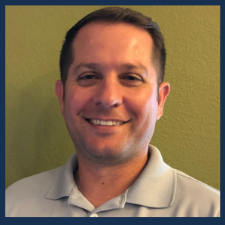 close
closeJonathan Furasek
Education
University of Nebraska, B.S. in Agronomy, business emphasis
University of Nebraska, Master in Business Administration
Job Overview
I am the Syngenta district manager and I cover 11 territories in Nebraska and Kansas. My team sells chemicals in these regions.
Most Beneficial Class
The agricultural economics courses I took were particularly helpful, especially when examining how markets move. I deal with the movement of markets often since I’m in a sales position. Since I’m an agronomist, the core agronomy classes I took like soils and crop science were also important.
What classes do you wish you would have taken?
I wish I would’ve taken a foreign language, particularly Spanish. I also would have taken a few more chemistry classes instead of just the required classes for an agronomy major. Understanding chemicals is key in agronomy, and sometimes I learn as I go.
Career Path
During college, I visited the career fair and established a relationship with the Syngenta recruiter. Establishing that connection was helpful, because the recruiter let me know after graduation that Syngenta was hiring for a position, I was interested in. The job I’m in now, District Manager, is the fourth position I’ve had at Syngenta. This job was made available internally within Syngenta and hearing about it through those I’d previously worked with.
Average Day
My job is field based, which means I have no office and primarily operate out of my home. My hours vary by season, when it is busy my hours can be from sun up to sun down. In the slower times of year, less time is spent in the field. And the only extra work I usually deal with is a few calls on weekends.
What do you wish you would have known?
In college and the younger years of my life, I was used to accomplishing every task I had on my to-do list every day. After accepting my job I quickly realized that finishing every task that I had to do wasn’t realistic. I learned to prioritize and finish the most important things first and push back less important tasks if necessary.
Advice for Students
Getting experience through internships is important. Taking internships in a wide variety of areas will open your eyes to paths that might not seem viable at the time, but that you could potentially become interested in the future.
-
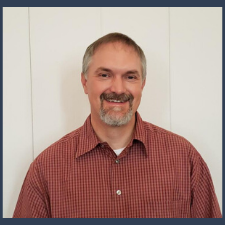 close
closeCanaan Ohlde
Education
Kansas State University, B.S. Agronomy, minor in agricultural economics
Job Overview
I started my career right out of college with Monsanto, now Bayer. I have been with them, in some capacity, for 18 years. My current title is District Sales Manager . I manage supplies, budgets and seed inventory to support dealers in selling DEKALB/Asgrow seed in an 11-county area. I also organize training and educational events and respond to customer concerns. This position gives me flexibility and the capacity to also farm, which I do in Washington County. I’m very grateful for the chance to do both. I knew that at some time I wanted to return to the area I was raised and this helped me meet that goal.
Most Beneficial Class
It might not be a specific class that was most beneficial, but rather being taught how to learn and find what you need to know. What you need to know changes all the time, especially because I’ve moved into so many different roles within Bayer. My accounting classes which were not at all directly agronomy related helped when I got into the positions in St. Louis where I was Production Lead. In those roles I had to figure cost of goods sold and manage purchasing, costs and budgets. My public speaking class was helpful. The ability to be comfortable speaking in front of small and larger groups will always serve you well.
What classes do you wish you would have taken?
I think presently and going forward it would have been useful to have a better understanding of the technology and precision ag facets of the industry. I find that I make the most phone calls looking for answers that deal with precision technology or electronics. That is going to be a bigger and bigger part of things. It seems most of the trouble-shooting I do is focused in those areas.
A good solid refresher course on agronomics every few years or so is beneficial. I attend conferences like No-Till on the Plains and others to stay up to date, but farming has changed so much with no-till and cover crops that you need a good source of forward-looking information to keep up.
I taught myself a lot about Excel early in my career to process data. My specific skills in that area helped me in several positions within Bayer because I was able to help other people make use of and interpret the data, they had access to.
Career Path
As I mentioned above, I’ve been with Bayer since the beginning, but I’ve made multiple moves with the company. My current position was at least in part driven by my desire to be close to my home area and raise my family in a rural community.
I started out in Ulysses Kansas as a Trainee/Seed Quality Supervisor focused on Sorghum. I then moved to Huron California as a Seed Quality Supervisor/Operations Supervisor and worked with Foundation Seed Production. I worked with growers, migrant employees and government agencies in the production of foundation corn, sorghum, cotton and winter canola seed.
From California I went to Michigan and then Illinois. My work there involved managing warehousing and distribution and then management of germination, vigor, a herbicide tolerance quality testing, respectively. I held two positions in St. Louis as Production Lead first for Sorghum, Winter Canola and Alfalfa and then as Eastern Corn and Counter Season Production Lead. In this capacity I worked internationally with Argentina, Chile and Canada locations.
I then made the move back to Wichita, Kansas to be closer to home and somewhat more rural. This required a move from the seed production side of the company to the Biotech Trait Development Testing side area. In this role I was helping to manage the testing of new products light DroughtGard corn or Xtend soybeans years before they were available to customers/farmers.
My final move was back to Washington County to become the District Sales Manager where, I was able to begin farming more and get back to a direct connection with producers and crop production.
In all cases, networking has been key to having opportunities and making moves within my career. Always have conversations with people and be transparent and open about what your goals are. People will reach out to you when they know what you want to accomplish.
Average Day
As a DSM I have a flexible schedule. I basically work the same schedule and hours as the dealers, normal 8 to 5, but during key times like planting and harvest, it is more hours including evenings and some weekends. When we are planting plots that is also a busy time. During the off season I am able to stay more on an 8 to 5 schedule.
But, with technology these days, I am always on call and my phone is (almost), always on. Basically, the only time I turn it off is Sunday mornings for church! Technology makes it possible to do the job anywhere, but it also stretches out when you are available. Over the last six years, this job has also evolved into doing bookwork and a lot more desk time. Which includes managing inventories, budgets and data, with less time to be out in the field.
What do you wish you would have known?
I started out my career very much like I thought I would. I expected to be doing crop consulting, or something “out in the field”, but then ended up doing things I never thought I would. I wasn’t ever afraid to take on something new, to learn on the fly and just go.
I learned not to agonize over a decision to move or try a new role. I have had nine jobs in 18 years across six states. But eight of those jobs were in the first 12 years. Sometimes a move I thought might be life changing, really didn’t have to be. There are a lot of opportunities in agriculture. You can go do something for two or three years and then do something else to gain experience or see other areas. When I had the chance to accept a new position, I often didn’t have very much time to decide yes or no. I usually said yes and was used to moving and learning something new all the time. You need to be able to learn quickly. I have been in this current job for a little over six years now and it is nice not to be moving so much now that the kids are in school.
Advice for Students
Agriculture is a big industry, but it is also a small industry. Make sure to network well. You will see people again and again and relationships will transcend the position you are in or the company you are with right now. Don’t burn any bridges, connections are everywhere and will surprise you.
I found it really interesting to be part of agriculture in California’s San Juaquin and Salinas Valley and in Argentina and Chili, but I was glad I was able to do it early in my career. So, I would say don’t be afraid to travel or take a job further away when you are young and easily mobile. It gets harder as you get older!
-
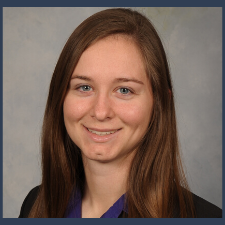 close
closeChelsea McCall
Education
Kansas State University, B.S. Agronomy, plant science and biotechnology option
Kansas State University, M.S. Agronomy
Job Overview
I am an agronomy instructor and the coach for the crops and soils judging teams at Cloud County Community College (CCCC). At CCCC, I teach all agriculture courses related to plants and soils. I also teach a few ag business-related courses.
Most Beneficial Class
My most beneficial class was the crop science course at Kansas State. Crop science is the main course that I teach at CCCC now, so I use that material every day. This course is also the reason I discovered my interest in teaching.
What classes do you wish you would have taken?
My agronomy degrees were science focused so I wish I would have taken more business courses.
Career Path
While studying at Kansas State, I had two internships with Mycogen Seeds. While in Nebraska I focused on producing seed corn that would be sold to farmers. During my second internship with Mycogen I was in Ames, Iowa where I focused on developing the lines, they would cross to make a hybrid. While attending school mu original plan was to become a plant breeder, but I soon realized I didn’t want to be in front of a computer most of the time. One semester, Dr. Donnelly encouraged me to teach his crop science labs and that’s when I found out I wanted to become a teacher. I started teaching at CCCC while finishing her thesis with Kansas State.
Average Day
I usually start my day around 7:30 a.m. In the morning I will manage the greenhouse and get class materials ready for the day. Classes are in session from 9:00 am to 2:00 pm. At the end of the day, I will work on grading assignments and preparing for the next day.
What do you wish you would have known?
I wish I would have known to take more precision agriculture courses. I have taken on the precision agriculture program as well and CCC works with precision technology daily. Technology is becoming a bigger part of agriculture every day.
Advice for Students
Pay attention and ask questions. Internships are very important as well. They are where you will get hands on experience.
-
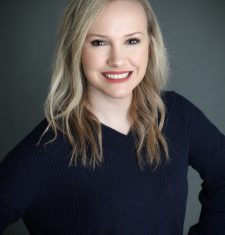 close
closeMorgan Nitsch
Education
B.S. Kansas State University, Agricultural Education
Currently working on M.S. Kansas State University, Master of Agribusiness
Job overview
I am in Agronomy Sales. I work closely with producers to increase profit to their farm. I specifically focus on fertilizer and chemical sales to producers.
Most beneficial class
Most beneficial class for me was Weed Science as well as communication classes. In my industry it is so important to understand that every producer is different. If you do not learn how to communicate properly, this industry will throw you out quicker than you go started.
What classes do you wish you would have taken
I wish I would of taken more market futures classes. With chemical and fertilizer you are constantly battling the market futures.
Career path
My career path was a little different than most. I started with a major in Animal Science, shortly after starting I realized that was not for me. That is when I transferred over to the Agricultural Education department. The summer after I started the program I interned for Central Valley Ag (Farmway at the time). This is where I made the connection of that led me to Agronomy Sales. While going through the AGED program I had been actively searching for a teaching position to open up around my hometown (I knew that is where I would end up, my husband farms there). Unfortunately, nothing was opening up close enough. That is when a I was approached about a position in Sales for CVA (Farmway). I took the job and fell in love with the industry and to this day that is what I am still doing, except for Crop Service Center out of Beverly, Kansas.
Average day
An average day for me is spent out in the field and talking with producers. I spend most of my time making recommendations for chemical and fertilizer. During busy season, I can expect my phone to start ringing about 7 am and not stop till about 9:30 that night.
What do you wish you would have known?
To not be afraid of taking on new opportunities. It helps you grow into the person you want to be.
Advice for students
Intern. Intern. Intern. Internships are so important! Never stop learning. Make connection wherever you go, you never know when that connection will benefit you.
-
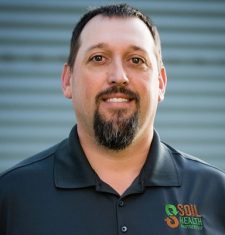 close
closeKeith Byerly
Education
University of Nebraska-Lincoln, B.S. Agronomy and Crop Science
Job overview
In my roles as the Western Field Team Director and Kansas/Nebraska Field Manager for the Soil Health Partnership, I work remotely where I cover Kansas and Nebraska both. In my positions I work directly with growers to implement the conjunction of precision and sustainability to help growers find solutions with real world applications. My focus, along with my team of four is on soil, groundwater, and irrigation management.
Most beneficial class
In one semester of college, working around a math requirement, I ended up in a statistics class, and a logic class. Between that pair of classes I learned the foundation that made almost 20 years of precision agriculture leadership possible. In addition, I took a few communication classes that helped me develop into management positions in my early career. Because of those select communication classes, I was able to communicate effectively through email and in all realms.
What classes do you wish you would have taken?
There are classes that are available today that were not available when I was in college. 25 years ago, the focus was pest and disease control, along with nutrient applications. With the focus today, I wish I could have taken more classes in microbiology, technology, and soil quality.
Career path
After graduating from UNL in 2001, I worked for Central Valley Coop where I was a Sales Agronomist for two years and then Precision Ag Manager for 16 years. In spring of 2019, the flooding was everywhere in Nebraska, not just along the Missouri River. I quickly realized the importance of conversation practices and the emergence of the sustainability in agriculture. In June of 2019 I became the Kansas/Nebraska Field Manager and in September of 2020, added the responsibilities of Western Field Team Director for the Soil Health Partnership.
Average day
There is no such thing as an average day. In the course of a week, I do my best to balance both working directly and indirectly with my team. Each Monday afternoon, we meet to face any challenges or concerns, discuss communication protocol, and talk about any additional events. When I leave the management side behind, I usually spend my day working through grower data, soil samples, yield data, visiting with growers, and scouting fields. A much bigger part of my position is building the portfolios for new customers and working through the planning process. A lot of my time is spent working with growers on historical data, planting and harvesting history, and soil conditions. During the production season, I spend numerous times of the growing season in the field scouting as well as when I am collecting post-harvest data.
What do you wish you would have known?
One thing I wish I would have known is that you cannot learn it all in college. In agriculture, you must be willing to find answers, be resourceful and continuing expanding your knowledge. Even if you have worked with the same grower for many years, there will be things to research and find information.
Advice for students
Be humble, learn underneath others, work hard, and pay your dues. In addition, never think that your career path is locked in because of your degree. A team of people with diverse degrees allows companies to grow, expand and look at situations more effectively.
Career Profiles
Mechanic
Mechanics are a vital part of an agriculture operation. They are responsible for implement general maintenance, mechanical and carpentry duties. They often times have a very wide skill set, depending where they are located. Mechanics can get a wide variety of certificates making them even more flexible in their profession.
Unlike other professions, mechanics can have a wide variety of certificates and skills, making them versatile assets in the farming community. Ag mechanics can work on anything from a pivot to a combine in the same day or specialize in things like hydraulics or electrical needs.
-
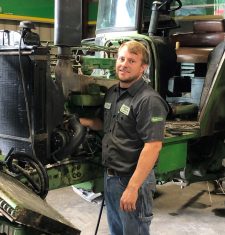 Clayton Townsend Ag Mechanicclose
Clayton Townsend Ag MechaniccloseClayton Townsend
Education
I attended a John Deere tech program through Fort Scott Community College. Prior to entering the program, I completed my pre-requisite courses through Pittsburg State University. The program was very hands-on, allowed me to gain experience and knowledge prior to graduation and took two years to complete. I’ve always preferred hands-on learning, so this was a great fit for me. My instructors were very thorough and truly cared about the success of their students. I highly recommend the Fort Scott program to anyone wanting to enter this field.
Job overview
I have been working with John Deere equipment since August of 2009 and have worked for Heritage Tractor as a mechanic since February 2019.
Most beneficial class
I feel like all my classes were beneficial because they were really hands on which prepared me well. My service advisor class really helped me learn how to navigate the computer systems on the equipment which is a big part of what I do on a daily basis.
Career path
In 2009, I was sponsored by a dealership and worked there in between my classes. Working in a dealership allowed me to really get a good idea of what it would be like when I graduated. Throughout my career, I have worked on various types of equipment and now I am primarily a field tech. I enjoy what I do, and I like building relationships with customers. I am constantly busy and being challenged all the time.
Average day
I work on everything from combines, tractors, planters, and construction. Each day I work on anything that I get a service call to work on and do what it takes to get it fixed.
Advice for students
Some advice I have for students is you will have good and bad days as a mechanic. It takes a while to get the hang of the equipment and it changes so often that you must keep on the training often.
-
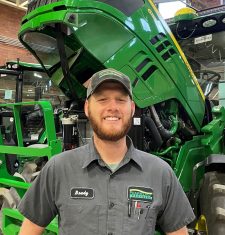 close
closeBrady Ochs
Education
Cloud County Community College, A.S. Agronomy
Fort Scott Community College, John Deere Tech Program
Job overview
As a Mechanic with Prairieland Partners at the Hutchinson location, I am focused mainly on seeding and planting. In my role so far, I have worked on everything from planters, cotton strippers, combines, sprayers and even tillage equipment. Even though I am focused on seeding and planting, I fill in as the shop needs me which allows for variety.
Most beneficial class
In both my associate classes, learning the basics of agronomy was incredibly beneficial because the background knowledge of knowing planting windows and growing seasons is important in planning with any farmer. The whole curriculum of the tech program was helpful, but during my last semester equipment diagnosis that helped us finds bugs and issues in equipment.
What classes do you wish you would have taken?
If I were to go back, I would like to go back and take some more basic agronomy classes to continue building a good understanding. Since the tech program courses were already established, I could not vary my classes in any way.
Career path
In college, I worked for PrairieLand Partners at a location near Fort Scott, KS after classes get over and on the weekends. During the John Deere Tech Program, I was incredibly active in PrairieLand shops both in Iola and Hutchinson. While I college, PrairieLand gave me the opportunity to work on nearly all pieces of equipment and get experience with just about everything. Being able to work in the shop during college really gave me a broad perspective of what I enjoy working on, what equipment I am successful with and gave me experience before working full-time. After graduating from the John Deere Tech Program at Fort Scott in May of 2021, I took a full-time position as a Mechanic at the Hutchinson location, where I am focused mainly on the seeding and planting side.
Average day
A busy day consists of showing up and getting right to work on projects, answering phone calls, and doing work on what needs done. There is not much variation in the day, other than the varied amount of different equipment I get to work on.
What do you wish you would have known?
I wish I would have known that it was not going to be as hard and complicated as I made it. I caused a fair amount of stress on myself for no real reason, but once I got into breaking the equipment down it made things much simpler.
Advice for students
Just do it. Everybody wants you to help you, so just ask questions and get the ball rolling!
-
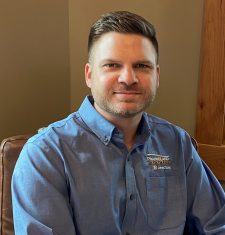 close
closeMitch Guetterman
Education
Kansas State University, B.S. Agronomy, Minor in Agribusiness
Job overview
As a Regional Director for PrairieLand Partners John Deere, I support several locations in south central Kansas. I oversee employee engagement, customer experience, market share, and store performance. Every week, I travel to at least three of my locations but am home every night.
Most beneficial class
At K-State, I enjoyed the business and finance classes I took along with crop growth and development on the agronomy side.
What classes do you wish you would have taken?
If I knew then what I know now, I would have went more towards the business and finance route at K-State. If the sales and precision technology classes would have been available, I would have also taken those.
Career path
After graduating from K-State, I went home to my family farm near Bucyrus, KS for three years. After getting married and having our first child- I quickly realized that I wanted to change careers with the generational dynamic of the family farm. In December 2009 I started the interview process with Prairieland Partners for a sales position in Wichita and was hired. This position molded exceptionally with my experience on the farm, running late model John Deere equipment and my knowledge within the realm of technology. In my third year at the Wichita location the Marion, KS PrairieLand Store Manager position became available. In May of 2013 I applied for the Store Manager position and in July was hired at the Marion location. I managed the Marion location for six years until the structure of the company changed and Regional Director positions were added. After quickly realizing my experience within PrairieLand Partners, I applied for the Regional Director position and have been in this role ever since.
Average day
Each day is different, which makes each day fun. Typically, I travel to one of my locations where I visit with the store and department managers to cover several items including any customer or employee concerns, and review store performance. My busy season would be from October through March when we are closing out John Deere’s and PLP’s fiscal year, working on budgets, and doing performance reviews. During the spring and summer seasons, I have the flexibility to meet with customers during planting and harvesting and make farm visits.
What do you wish you would have known?
I really enjoyed college and the connections I made but looking back I wish I would have done a better job of pursuing internships and gaining experiences off the farm in the summer.
Advice for students
There is no substitute for getting experience in the field or in the technology sectors. Do not be afraid to try new things, join new organizations or take internships. In addition, if you do go home to farm, it is acceptable to leave if it is the right choice for your professional and personal goals. If you do want to go home to farm, I also believe it is beneficial after college to go out and try something else for a few years.
-
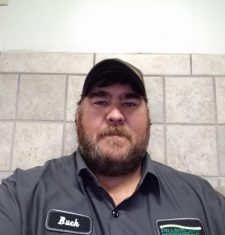 close
closeBrock Rogers
Education
Hutchinson Community College, Agriculture Diesel Program
Job overview
As the Tractor Foreman at the Hutchinson PrairieLand Partners location, I oversee three field and three shop technicians. As the Foreman, I help technicians in the shop diagnose problems with equipment if they need help and typically work on a project of my own. If we do have a service call, I will send a technician on the road and help make the repair order and diagnosis.
Most beneficial class
Unlike many other mechanics, I did not grow up with a mechanic father. Growing up, we did not even change our own engine oil, so when I first joined the program everything was new. Therefore, every class I took at HCC was incredibly beneficial in my career.
What classes do you wish you would have taken?
During my college experience, there were not many classes I wish I would have taken. I believe that I was able to take the classes that I needed to succeed, but taking more technical classes that they offer today would have been intriguing.
Career path
I was the first student that Pankratz Implement sponsored through agriculture diesel. As I walked across the stage during my 1998 HCC graduation day, the CEO of PrairieLand shook my hand and said, “See you Monday!” Then in 2008, PrairieLand Partners merged three John Deere dealerships, Pankratz Implement, Deere Trail Implement, and Conrady Western. My official hire day to Pankratz Implement, now PrairieLand Partners was December of 1998. When I first started, I was a very young technician, then about 10 years ago I transitioned into a Tractor Foreman and have been the Tractor Foreman at the Hutchinson location ever since.
Average day
Two days are never the same in my role and minute to minute, I never know what I will be doing. I am typically at work from 7:30 a.m. to 5:30 p.m. everyday where I may be on the phone with a customer, field technicians or customer, working on a project or even diagnosing equipment with a technician. Each season is little different, but wheat harvest and corn planting is definitely the busiest time.
What do you wish you would have known?
As a mechanic, one thing I wish I would have known is just how dirty you can get in this field. There is never a day that I come home clean.
Advice for students
Soak up all the knowledge that you can in college because you get out what you put into your education. Once you hit the shop floor, you are required to get right to work. Even though it is a very demanding profession, it is a very rewarding one in fact.
Career Profiles
Custom Harvester
Those in the Custom Harvesting profession are hired to harvest crops. They typically travel with a crew during harvest running equipment, moving to the next location or networking with new customers. Custom Harvesters are often hired with a farmer doesn’t have time or the funds to purchase their own large equipment.
Custom harvesters can have different specialties, usually as a forage harvester or a grain harvester. A forage harvester uses choppers, mowers and swathers in harvesting multiple crops such as alfalfa or corn, which produces silage to feed livestock. Grain harvesters use combines to pick corn and cut small grains, this is what is more common in the state of Kansas.
-
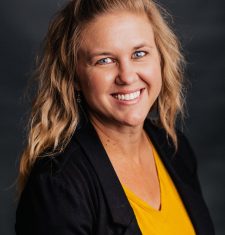 Laura Haffner High Plains Harvestingclose
Laura Haffner High Plains HarvestingcloseLaura Haffner
Education
Kansas State University, B.S. in Elementary Education, Minor in Agronomy. Clemson University Master of Science (M.S.) in Biological Sciences.
Job overview
As the co-owner of High Plains Harvesting, I do anything from the bookwork to operating equipment. I spend typically from mid to late May to August on the road with the crew during wheat harvest, doing anything from running equipment, moving vehicles, making meals, taking pictures, running the business social media, finding customers and more. During the fall harvest run, I will meet up most weekends and help in all sectors that I am needed. Throughout each harvest season, I do most of the clerical work from paying bills, payroll, and CDL trainings.
Most beneficial class
My most beneficial class at Kansas State would have been any of the Agronomy classes I took while getting my minor. The crops and the dynamic of the growing cycles as we have moved into the harvesting role has been very important. Along with my Agronomy classes, my extracurricular activities, were just as important to develop leadership and people skills to be able to work with our customer and employee base.
What classes do you wish you would have taken?
I wish I would have taken a few classes in agriculture technology management (ATM), mechanics or welding.
Career path
Following college, I worked as an Answer Plot Trainee at Land O’Lakes where we planted plots across Nebraska, Colorado, and Kansas. Reflecting, the answer plot crew gave me exceptional crew work experience and has been very beneficial to owning and operating on the custom harvest crew. Following the trainee position on the answer plot, I worked for Syngenta Crop Protection as a Sales Representative before going back into teaching. During my teaching career, I taught high school biology, 8th grade science and now I am instructor at Fort Hays State University in the Department of Agriculture.
Average day
No two days with the crew look the same. When you are a “mom and pop business”, you must be willing to take on many roles. Some days I am prepping and delivering meals, completing HR and payroll duties, training, picking up parts or moving equipment. Being in a machine is not out of the question, and I always have my camera with me ready to capture life for our marketing. I visit with customers and other people key to the business. I am also a full-time mom so attempting to find balance for the family is challenging
There are times I leave the crew all together to take care of business back home as well as the paperwork that finds me there. I am also involved in other agriculture organizations that advocate for agriculture. I feel that giving back is key and a civic responsibility and worth making time for.
What do you wish you would have known?
It is okay if life does not fall into place exactly as you had planned after college. There will be times of immense growth and times where you feel like you are treading water as you navigate your first job(s), pay your dues, build relationships, etc. Highs and lows are a normal part of life. Sometimes you will need to dig in your heels and put in the work through a difficult season. In addition, often you will have to pivot when things need changed. Through your journey, do not forget to make time for fun along the way!
Advice for students
If there is something that excites you outside traditional stereotypes or gender roles of agriculture or life, do not be afraid to break the mold. There is room for new ideas and new ways of doing things. Learn from the lessons, celebrate the successes, block out the voices of doubt and surround yourself with people who have open minds.
-
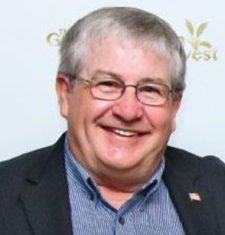 close
closeJim Deibert
Education
Colby Community College, A.S. Agriculture Economics
Job overview
As the owner and operator of JKD Harvesting, I generally run a combine during harvest and manage scheduling. Instead of doing the paperwork myself, I have a secretary that helps with bookkeeping, billing, permits, truck regulations, reports, and anything else that may come up. My first combine was purchased in 1971 and the second was purchased in 1976. JKD Harvesting, located near Colby, KS was then established in 1985 and incorporated in 1998. During a typical year, we are on the road from May to November making stops in Texas, the panhandle of Oklahoma, and Kansas. JKD Harvesting typically goes south with 10-12 people during the wheat harvest run, and then in fall harvest we will increase the crew to about 16 people. During the fall run, we harvest wet and dry corn, soybeans, and milo. As a crew, we enjoy having foreign students and J-1 Program students from England, Ireland, Zimbabwe, New Zealand, and Australia help. The J-1 program has been a very rewarding program because I think I learn more from them then they learn from me. We have lifelong friends around the world, and it is an amazing journey. Most of my customers I have cut for, for about 25 years where I am now starting to work with the second and third generation farm operators.
Most beneficial class
Even though the first two years of college are basic classes anyways, history and geology were two of my favorite classes.
What classes do you wish you would have taken?
I do not have any classes I wish I would have taken, but I wish I would have finished my bachelor’s degree from Fort Hays State University. I only had three semesters to finish my degree, I just decided to take the custom harvesting path instead.
Career path
I initially got into custom harvesting as a part time job during college. I began working for a custom harvest crew, went on harvest for one summer, and then thought I would take over the custom crew I was working for. Instead, he had a son in law who wanted to take the operation over, so and in 1976 I started my own harvesting business. When I was working on finalizing paperwork for my loan, my banker said to me “I don’t have much luck with custom harvesters.” But I started with two combines, and two years later he told me was proud of me. During my first few years in harvesting, I went from Texas to North Dakota for the wheat run and then in fall I did some local work mainly.
Average day
In custom harvesting, every day is truly an adventure. All days are good; some are just better than others. During the winter season, I usually call my customers almost once a month for just a social visit, with crops being the last thing we talk about. During the winter, we are fixing and servicing equipment for the wheat run and I am managing any customer service duties that appear. Then during both fall and wheat harvest, I am usually in a combine, managing scheduling and making sure the crew is taking pride in our work.
What do you wish you would have known?
When I was 10 years old, I would get so excited when the custom harvesters would come to town. I am not a harvester as much as I am a teacher for our crew members and others. I do not have a lot of regrets because I have done my best to serve the industry, been involved in the U.S. Custom Harvesters Association, and assisted in the safety program.
Advice for students
The biggest advice I can give is to not try to be too big too quick. Get one combine, learn the business, and continue growing with your progress. It takes a lifetime to get to where some harvesters are today, just be patient in the process.
Career Profiles
Farm Broadcaster
Those in the Farm Broadcast profession use radio or television to report stories that can be found relevant to agriculture viewers. During a typical day, a Farm Broadcaster may work in radio and television, report on news stories, determine editorial content for network programming, share news, weather, market and feature programming and even attend live, in-person events.
They often special in communication, journalism, broadcasting or agriculture communications with focus on writing, English, computer courses and public speaking.
-
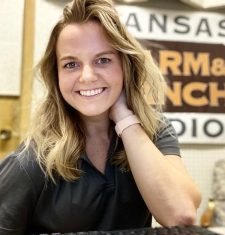 close
closeMadison Mackley
Education
I graduated from Kansas State University with a degree in Agronomy and a minor in Animal Science.
Job overview
As the Farm Director for the Kansas Farm and Ranch Radio Station in Colby, I make news accessible in speaking about the latest news in agriculture, farm news updates for both crops and livestock, market reports, and the Kansas Farm and Ranch Radio social media as well.
Most beneficial class
The most beneficial class I took was my Agronomy Capstone class my senior year. We learned a lot about how to talk about difficult agriculture topics with consumers and the public without coming off as condescending and how to show we wanted to educate without belittling.
What classes do you wish you would have taken
A few classes I wish I would have taken would be some of those business, economic, and even some more ag communication classes as well. Looking back and not knowing I would be in this position today, taking more of the communication classes would have been good.
Career path
After taking a few summer internships with Crop Production Services in sales, I decided that a career in sales was not the route I wanted to take like I thought. During my senior year of college, I was mainly looking at scouting opportunities or even something completely outside the realm of typical agronomy work. I ended up getting the Thomas County Ag & Natural Resource Extension Agent in Colby, KS immediately following graduation. I served as the Thomas County Extension Agent for about 1.5 years before realizing it just was not the fit for me. I then returned to the farm, to what I thought would just be temporary until I find something else. I worked full time for the farm before starting to split my time between the farm and the Kansas Farm and Ranch Radio Station in Colby as the Farm Director.
Average day
My average day is a little bit different than a normal farm broadcaster because I do split my time between the radio station and the farm. However, I do the live auction block at the radio station from 8AM-8:30AM, depending on how many sale barns call in and then I log reports, make calls, and cover markets until about noon before heading to the farm for the rest of the day. I must be extremely diverse at time management, especially when it comes to still getting radio reports done during harvest, planting, and calving. I have been lucky so far in the being able to a lot of my reports from home as well.
What do you wish you would have known?
Change your major sooner if you know you do not want to be in it anymore. Even if you are open option for a while, it gives you an opportunity to take other classes and explore as opposed to being in major classes for a major you’re not wanting to graduate in anymore.
Advice for students
Some advice I have for students would be to explore all options of the industry. Talk with other people in the industry about their major and how they fell into the role they are in now. There is also absolutely nothing wrong with switching careers after your first job right out of college either.
-
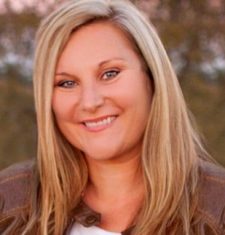 Laura Handke Homeplace Communicationsclose
Laura Handke Homeplace CommunicationscloseLaura Handke
Education
Northwest Missouri State University, B.S. in Agriculture Science. Northwest Missouri State University, Master of Science (M.S.), Agriculture Science
Job overview
Since launching my company, Homeplace Communications, one of the biggest and most gratifying projects has been the opportunity to coordinate and host AGI SureTrack’s weekly CoffeeTalk conversations. Agriculture education has always been a passion of mine and the CoffeeTalk program affords me the opportunity to schedule general agriculture education outreach across the gamut of organizations and interests.
In the contract with AGI SureTrack, I pre-screen all guests, coordinate and schedule every conversation, coordinate and execute the dry-runs and tech checks and author the blog recaps. Occasionally, I also have the opportunity gain some earned media opportunities for SureTrack. When those present, I also write those articles and coordinate publication.
CoffeeTalk is a project that I am proud of in the fact that it has provided an additional outlet to share agriculture education content from rural connectivity to mental health to food security during the COVID-19 pandemic. CoffeeTalk has given numerous sectors of agriculture education the opportunity to gain additional outreach.
Most beneficial class
During my time in college, three of the most beneficial classes I took that now give me the capability to succeed in my role as a contractor would be my applied livestock genetics and crop, soil and weed science classes. The majority of my classes were hard science classes that gave me a solid base in production agriculture.
What classes do you wish you would have taken?
Now that I am in the communication field of agriculture, I wish I would have taken more communication classes to learn more of the technology and software platforms.
Career path
After graduating from Northwest Missouri State with my bachelor’s degree, I worked in the hard science field for about six years. During those six years, I worked for McCormick Distilling as a chemist for two years and then moved over to Nestle Purina and worked as a Regulatory Affairs Analyst for the next four years. Following my six years in the hard science field, I was given the opportunity to work for Hemisphere GPS’ Outback Guidance. While working for Outback Guidance, I had the opportunity to return to Northwest Missouri State University, full-time through an assistantship. The focus of my graduate work and assistantship centered on connecting beef producers with the local consumers who wished to purchase from the farm. Ironic, considering the on-farm sales environment we find ourselves in thanks to COVID-19 created food supply chain disruptions. The grant project, Market Opportunities for Regional Entrepreneurs (MORE) not only helped me to attain my masters degree with no financial debt, but also fueled my passion for agriculture advocacy and building connections between rural producers and urban consumers. After graduating with a M.S. in Agriculture Science, I spend the next six years working for Missouri Farmers Care where I helped to launch and grow an elementary-based education program. In 2016, I began freelance writing and began to pursue endeavors in agriculture communications, which led to the formation of Homeplace Communications.
Average day
No two days are ever the same as a contractor, although COVID-19 travel restrictions have helped to keep me in the office this past year.. I have worked remotely since finishing my graduate degree, which has both positives and negatives. A typical day begins with answering emails between 5:30 and 6 a.m. and resumes around 8:30 after I drop my daughter off for school. I work through the school day and pick her up around 3:30; I usually revisit things around 9 for a couple of hours before I go to bed. Flexibility is both the greatest gift and greatest curse! When you work for yourself, it’s just a matter of getting things done.
What do you wish you would have known?
Looking back, I wish I would have known the endless opportunities of combining my passion for agriculture science and communication before I started college. I didn’t even know the opportunities to freelance or work on contract existed within the industry.
Advice for students
As I have transitioned throughout my career, some advice I have for students would be to never let your background or specific degree hold you back from following your passions. Follow what you love and know that it may take some time to figure that out. A diploma looks nice on a wall, but waking up to do work that fuels your fire is the first career goal we should all have. Get out, get experience in several different sectors of industry and let your ambition guide you!
-
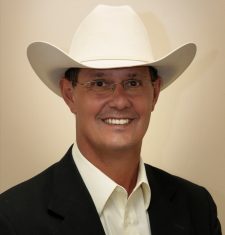 Kyle Bauer KFRM & KCLY General Managerclose
Kyle Bauer KFRM & KCLY General ManagercloseKyle Bauer
Education
Kansas State University, B.S. Agriculture Economics
Job overview
In 1996, a few investors and I bought KFRM and KCLY where I now serve as the general manager for both radios. Since 1996, Taylor Communications has made a commitment to be one of the leading agricultural stations in the country.
Most beneficial class
I had the hardest English Composition II teacher at K-State. I never had any idea I would be doing so much writing, to correspondents, advertisements. Even though the class was extremely hard, I really appreciated the lessons I learned in Composition II. I enjoyed Sales Communications because it was interesting learning about persuasive writing and the science between selling. In the management role I am in, to succeed, I must understand financial reports. Additionally, accounting 101 was incredibly helpful in that aspect.
What classes do you wish you would have taken
In college, I wish I would have taken a few employee management and human resources management. When I came home from college, I had zero experience supervising people. It took me about ten years to train myself to be a supervisor, therefore taking some human resource or employee management classes would have been beneficial.
Career path
After graduating from K-State, I came back to my family farm in 1980 in the Clay Center area. I then added paths in manufacturing, fast food ownership, radio ownership and management, and commercial property management. Around 2005, I digressed from farming.
Average day
My days mainly involve staying accessible for people to get approvals and information, while monitoring and enforcing management systems.
What do you wish you would have known?
The people I met at K-State were more important than I ever realized. Whether it was foreign students, professors, speakers, or other students- they are going to have impact in the world for the rest of my life.
Advice for students
1/3 of your education is the classes you take, 1/3 of your education is the people you interact with (friends, classmates, roommates, professors, industry professionals) and 1/3 are the activities you participate in (including college organizations, attending sports, parties). I would also recommend getting a part-time job to gain further experience and help pay your way through college. The high school and college jobs are what I look for when hiring people, not their GPA.
-
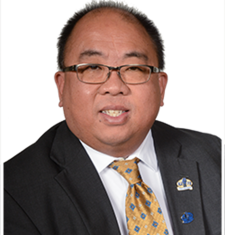 close
closeGreg Akagi
Education
Fort Hays State University, B.S. Radio Television Film
Job overview
As the Farm Director at the WIBW Radio/Kansas Ag Network, my role is incredibly similar with any other director positions. I manage station budgets, cover stories and book early morning programming. (I do live programming throughout the day as well as recorded programming for WIBW Radio and affiliates of the Kansas Ag Network. Among other responsibilities include booking guests for our early morning program, covering stories and managing two people that work for me. I also handle our yearly budget for our department and create programming opportunities.
Most beneficial class
I always tell students to take a lot of English classes because writing and speaking skills go hang (hand) and (in) hand. In college, the English classes I took were certainly the most impactful as I began to speak on air. As a broadcaster, you constantly try to improve your interview skills and communication tactics.
What classes do you wish you would have taken?
As I began my career, I realized quickly that I wish I would have taken a few more computer classes. Additionally, it would have been helpful to take some agriculture economics or policy classes from someone like Dr. Flinchbaugh.
Career path
Two of my brothers went into media (into the media business), so it was safe to say media (that it) was in my blood. From a young age, I knew that broadcasting was my passion, but never knew it was going to be agriculture related. Instead of taking a full job after graduating from FHSU, I took a news internship at KFDI in Wichita. I spent the summer in Wichita and then had a job opportunity in Goodland as the News Director at KKCL in September of 1990. I was the News Director for three years in Goodland before taking the Farm Director position at WIBW (Radio) in Topeka in November 1993. After a few title changes within WIBW (Radio), 28 years later, I am now the Farm Director at the WIBW Radio.
Average day
As a broadcaster, one almost catches the bug to continue working at a radio station. On a typical day, we start on air at 5 a.m. in the morning. Some days I will prep my morning material the afternoon before, while some mornings I arrive at 4 a.m. to prepare. Broadcasting makes for an incredibly long day, but it is truly rewarding when farmers and ranchers across the state rely on you for their daily weather, market, and agriculture news. Most days I leave the station early afternoon, but there are some days when that just does not happen. (There are days you work 10-plus hours, making for some long days, but they are worth it for the important information you are giving to your listeners). From November through March, we cover several local, state, and national meetings where we visit with producers across the state.
What do you wish you would have known?
As I got into my career, I often wondered what my career would have been if I would have started my career in farm broadcasting. I have been very extremely fortunate to have many (few) regrets, but it would have been interesting to see where I would be today if I would have started directly in farm broadcasting.
Advice for students
For anyone that is wanting to get into broadcasting, be willing to work at a small-town station. You also need to learn a little bit about a lot. Additionally, be multifunctional, educated, and willing to learn all aspects.
Career Profiles
Farmer
Those in the farming profession perform a wide variety of tasks including planting, irrigating, taking care of crops, harvesting and marketing their grains.
Unlike other professions, farmers have to have a very versatile skill set. Depending on where they are located throughout the state, farmers can grow very diverse collection of crops and harvest them at different times of the year. While not planting or harvesting farmers have to make sure their crops are growing well and can work to implement new practices to improve their soil health and continue increase their yields.
-
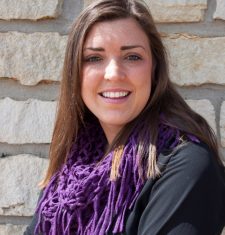 close
closeAbby Kroupa
Education
Kansas State University, B.S. in Agricultural Economics, Minor in Agronomy and Certification in Equine Sciences
Job overview
For my family’s farm, I am the full-time agronomist alongside splitting day-to-day management duties between my father, our hired men and now my husband. I also handle all crop input purchases and run equipment dependent upon the season. As far as commodity trading, Dad and I split grain handlings about 50/50.
Most beneficial class
During my four years at Kansas State, in my opinion three of the most beneficial classes I took were Ag Finance, Crop Growth and Development, and my 10-day study abroad to Costa Rica with the Agronomy Department.
What classes do you wish you would have taken
I wish I would have taken a precision mapping class in terms of working with QGIS Software and less on variable rating.
Career path
In college, I worked part time in the Weed Physiology Department of Agronomy before the position turned into an Undergraduate Researcher Assistant position. Immediately following graduation, I came back home to farm.
Average day
During harvest or planting, my day starts anywhere from 6:30 A.M to 7A.M. where I can be found running equipment, servicing equipment or anything in between. During the summer, I am either spraying, keeping irrigation running or walking fields at least one day of the week. Then during the winter months, I typically spend a few hours of the day on the computer, making phone calls, fixing equipment, or in the field soil sampling.
What do you wish you would have known?
One thing I wish I would have known more about being coming home to farm is grain merchandising from a grower’s perspective.
Advice for students
For any students that are wanting to return to their family operation after college, I would recommend finding someone in your area that has been successfully farming for more than 25 years that you can ask questions and have as a mentor as you make the transition home. There is a reason they are still farming. While in college, I would also recommend surrounding yourself with people that will challenge your ideas. Finding a group of people, especially working towards the same career path as you, to push you to be better or to find a more efficient way to do a task will make you a better person and farmer. Hopefully, they become a sounding board for your new ideas.
-
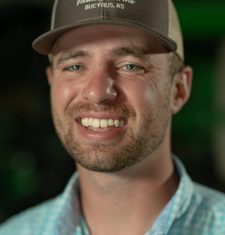 Hayden Guetterman Bucyrus, KSclose
Hayden Guetterman Bucyrus, KScloseHayden Guetterman
Education/Major
Kansas State University, B.S. Agronomy, Minor in Agriculture Economics
Job overview
I operate with my family on our farm in Bucyrus, Kansas. While on the operation, I do anything from managing precision ag programs, running equipment, to scouting, and assist in nearly any task that needs done. We have begun implementing soil health practices, so I look at that data over time and take the lead for our Soil Health Partnership field days as well.
Most beneficial class
During my time in college, I took a wide range of classes. I would note that the most beneficial classes I took were those in the Precision Ag curriculum. In a Precision Ag Systems class, we were able to complete a project in the class where we did grid sampling, collected yield data, created maps, and then made sound recommendations. The things I learned from those classes I have been able to bring back to the operation in terms of designing variable rate maps and analyzing computer systems.
What classes do you wish you would have taken
One class I wish I would have taken was Soil Microbiology with Dr. Rice. Along with Soil Microbiology, I also wish I would have taken some more business and accounting classes to better understand the farming finances.
Career path
After I graduated from Kansas State, I returned to the operation. As our family operation transitions between generations, the challenging part is finding new opportunities for each family member that wants to come back and farm.
Average day
My days are never the same and certainly depend on the seasons. A typical day during planting or harvest season begins about 7:30 or 8:00 AM and begin heading out to the field by getting seed, fertilizer, or equipment ready. Before beginning we will service our equipment and begin working through acres. During the winter, I try to attend at least a few meetings each year ranging in a wide range of educational topics. I enjoy getting off the farm for those meetings to meet some new people and learn new, beneficial information to bring back home.
What do you wish you would have known?
Each summer, except for the one after my sophomore year of college, I returned to operation to farm for summer break. Following my sophomore year, I did take a scouting internship near Great Bend, KS where I got to see some diversity and learn new practices. As I reflect, I do wish I would have taken just a few more internships while I was in college to make some new connections and gain additional experiences. I recommend anyone going back home to farm to take an internship because it can be very beneficial.
Advice for students
If you have the desire to go home and farm, just do it. If there are opportunities for you to farm, there is nothing wrong with returning home right away.
-
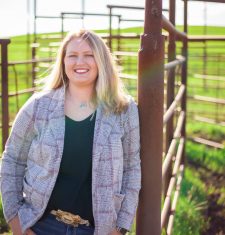 Jacquelyne Leffler Americus, Kansasclose
Jacquelyne Leffler Americus, KansascloseJacquelyne Leffler
Education
Kansas State University, B.S. in Family Studies and Kinesiology
Track & Field Athlete
Job overview
I work alongside my Dad on our 4th generation farm and ranch in Americus, Ks. On our operation, we grow corn, soybeans, wheat and raise stoker/feeder cattle in the Flint Hills. I am incredibly fortunate in the aspect that each generation before me has been progressive. We have been using precision planting and variable rating for some time, to maximize production efficiency. In addition to farming full time, I am the owner of Leffler Prime Performance where I provide locally sourced retail beef for customers and offer coaching for track and field athletes. As a millennial, I also began to share, network, and educate about our family farm and ranch through Twitter and Instagram. This has allowed for many speaking, engagement and leadership opportunities off the farm as well.
Most beneficial class
At K-State, I took a public speaking class that helped in engaging in audiences and giving speeches better. Now that I do quite a bit of public speaking, I reference back to the class often.
What classes do you wish you would have taken
I grew up and worked on the farm, but because I was not an agriculture major I was constantly joining educational webinars and joining leadership trainings to learn. Because I did not come back to the farm with an academic mindset to challenge my Dad with textbook ideas, we have been able to learn and grow together. In my opinion, I think it has been more beneficial for me to return to the family farm without an agriculture degree.
Career path
During college, I had no intent of returning to the family farm. After graduating from K-State, I moved into one of my families vacant rental houses just while I was figuring out. During that summer, I began helping on the farm full-time before taking the Assistant Track and Field coaching position at Emporia State University. After farming and coaching at a Division 2 college for three years, I realized quickly that I could not do both. In 2015, I began Leffler Prime Performance while also farming alongside my father.
Average day
Each morning, we meet in the shop to predict and plan how we think the day may unfold. During the day, we complete tasks as the arise and tend to business as needed. In the evenings, we also meet to discuss the tasks that were completed as well as plan for the following day.
What do you wish you would have known?
So often, we get caught up in chasing and pursuing dreams that we forget about those around us making the success happen. I wish I would have been more aware of the network and connections in college.
Advice for students
Some advice I have for students would be that your no is just as powerful as your yes. Overloading yourself can be just as negative as not doing it. In college you want to do it all and chase dreams, but you only have so much time to hangout with friends, watch movies or have fun.
-
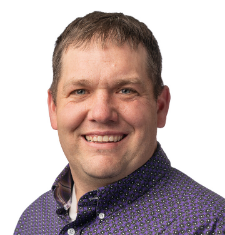 Mathew Elliot Hiawatha, Kansasclose
Mathew Elliot Hiawatha, KansascloseMathew Elliott
Education
Kansas State University, B.S. in Agriculture Communications & Journalism and Animal Science & Industries
Job overview
After returning home to farm, I now farm alongside my dad, mother and brother-in-law near Hiawatha, Kansas. We operate on a no-till corn and soybeans rotation across our dryland acres and run an angus commercial cow herd. Along with my mother, I take the lead on facilitating and managing daily tasks with our cow herd. During harvest, spraying and planting, we are each responsible for various roles and duties to operate effectively. My parents manage the office and bookwork, while I spend more time in the planter and combine. Because I had no intentions of coming back to farm, I did not study as much agribusiness, marketing logistics of even agronomic practices as much as I had hoped. Throughout the last few years, I continually try to increase by attending industry events, listening to webinars, and participating in additional commodity association organizations and leadership groups.
Most beneficial class
The most beneficial classes I took during my time at K-State was ASI515 (Beef Science) and AGCOM 410 (Ag Magazine).
What classes do you wish you would have taken?
I wish I would have taken some agribusiness, marketing, and agriculture economic classes to gain a better understanding of commodity trading.
Career path
After graduating, I worked as an Associate Editor at the Angus Journal and Angus Beef Bulletin with the American Angus Association for about four years. I really enjoyed my time at American Angus, but I realized very quickly that I was not meant to work in an office after growing up on a farm and being outside all the time. Throughout college and after, I did not really have any intentions of going back to farm, but I am 10-11 years in, and I have not looked back since.
Average day
Farming is such a seasonal career, especially when during calving season. During spring planting, we typically begin about 7:30 a.m. by greasing and preparing for the day. We then plant through the day until about 8 p.m. In the summer months, I tend to anything that needs attention to. During fall harvest, we generally start about 7:30 a.m. as well and work through 10-11 p.m. In the winter months, we ship grain and complete equipment maintenance as needed.
What do you wish you would have known?
I wish I would have known just how daunting going from college into your first career is. Now that I am home farming, I also did not realize how hard my parents worked during the harvest season either.
Advice for students
The people you meet in college are incredible. The friends you make in classes and college organizations will always have an influence in your life after graduating. It is important to network with those in the industry to reference in your careers as well.
Career Profiles
Agribusiness
Those in the agribusiness sectors typically hold positions such as sales representative, loan officer, commodity merchandiser, operations analyst, insurance adjuster, commodity broker and consultants. They often work for banks and credit companies, trade organizations, insurance companies and consulting firms.
They often specialize in areas such as finance, economics, consumer demand, management, marketing, price analysis and commodity futures. Common degrees in this field include agricultural business, agricultural economics, business, finance and accounting.
-
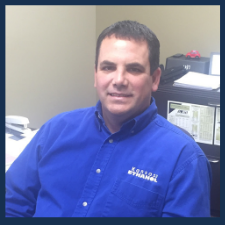 close
closeKyle Adams
Job Overview
Commodity marketing manager
Most Beneficial Class
Commodities trading class- The set up of the class was really neat, we could purchase up to three shares, put in money, and make a recommendation to buy or sell. It gave me real life experience that you don’t always get.
What classes do you wish you would have taken?
Accounting – detailed advanced accounting classes are helpful in the business world as you are dealing with fiscal year end and other financial statements.
Career Overview
I grew up with my dad as a coop manager, and when I was younger worked for a dairy farmer with crop land. After taking a trading class and some other experiences I was drawn in to look at commodity marketing. I had an Internship with FCC now is INTL FCStone, they are a commodity brokerage company that works with coop and private elevators and I did a lot with hedging. My internship led to full time position.
FCC now INTL FCStone- 9 months
Leroy Coop Grain Division Manager 1.5 years
Cargill- Topeka 6 years
Kansas Coop- Lyons 9 years
Advice for Students
Network and really get to know your classmates. It’s easy to go to class, but you will be surprised when you go to meetings down the road at how many of those same people you went to college with. If you network now you are setting yourself up to be successful in your career path.
Take a little while to figure out what you enjoy and what you’re good at.
-
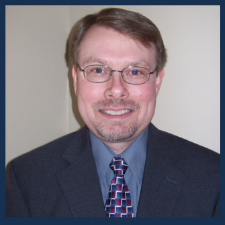 close
closeBill Holbrook
Education
BS Agricultural Economics, MBA Finance
Most Beneficial Class
Trading in Commodity Futures
What class do you wish you would have taken?
Foreign Language
Career Path
Market analyst for Farmland Industries working with all business units (fertilizer, petroleum, feed, grain).
Advice for Students
Pursue opportunities to learn about as many business aspects as possible, beyond your job description. Also, seek out mentors with the industry you are working.
-
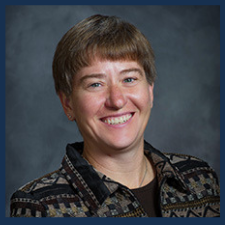 close
closeDonna Funk
Education
University of Kansas, B.S. Accounting
University of Kansas, M.S. Accounting
Job Overview
I am a principal for the Land and Energy segment of K·COE Isom. My responsibilities include business consulting focusing on biofuels (ethanol), helping clients achieve their goals; helping with general business projects and internal organization structure along with financial reporting and tax consulting.
Most Beneficial
I see a lot of the skills I learned in my core business and accounting classes come up every day. I took many management classes along with communication classes which are a big piece of being able to help achieve results.
What class do you wish you would have taken?
Working so closely with biofuels businesses I wished I would have taken more classes in science, especially chemistry. Although I wished I would have taken those classes it has not been a hinderance.
Career Path
I started out at Kennedy and Coe which later turned into K·COE Isom, which is a consulting and CPA firm. I started out in the traditional accounting role. As I grew in my career, I focused on the bigger perspective for the clients and their industries. I grew up on a dairy farm, which made looking into the agriculture side of consulting an easy choice. Today my work is centered around biofuel producers. Much of my work is either directly related to strategic planning and advice, financial management, and business structure or helping make connections in these areas.
Average Day
My average day is me delivering to my client’s needs. My average day is anywhere from 10 to 12 hours, often filled with many meetings, phone calls and video calls. The 10 to 12 hours is largely dictated by how much I really enjoy what I’m doing. Many times, my work requires me to travel whether that be for conferences or being there to meet clients first thing Monday morning.
What do you wish you would have known?
I wish I would have known all the possibilities my career truly had. I would say “don’t limit yourself to your major’s opportunities.”
Advice for Students
My advice for college students is to get involved early on. I think it is important to know how to juggle multiple tasks and groups that may not all have the same end goals. You want a career, not a job or a pay check. Do something that makes you eager to wake up in the morning.
-
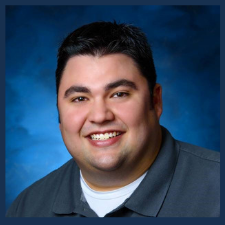 close
closeTony Elizondo
Education
Kansas State University, B.S. Animal Sciences and Industry, business option
Job Overview
I serve as the regional vice-president for the North Central Kansas area for Ag Risk Solutions. Ag Risk Solutions is a crop-only insurance agency. My responsibilities include ensuring that current client policies are properly setup, monitoring issues during the growing season, and make sure that losses are handled promptly and accurately, thus retaining clients. I am also responsible for new customer acquisition and promoting Ag Risk Solutions throughout the area.
Most Beneficial Class
My livestock classes have helped me relate to many of my customers. Although it was my experience on the livestock judging team that helped me truly develop my soft skills. Through the judging team I sharpened my networking and public speaking skills which I am constantly using.
What classes do you wish you would have taken?
I came from a livestock background and knew that side of agriculture the best. Taking a few more general agronomy classes would have helped in my first few years of my career.
Career Path
While on the livestock judging team, a former member of the team called the coach asking if anyone would be interested in selling crop insurance. It was spring of my senior semester; of course, I was interested. I interviewed for the position and was offered a job and have been with the company ever since.
Average Day
My average day varies considerably throughout the year, but usually always includes ensuring current clients are happy with their policies and that part of the business is running smoothly. I also work to find new customers whether that be through cold calling, attending tradeshows, or going to meetings held by financial services. While working with new clients I make sure that they are in full understanding of what, and why, they are buying. My busy season happens from the middle of January to the end of March, and then again at acreage reporting and production reporting. Some years require more of my time than others. If there is a poor crop, I spend a lot more time communicating with clients and adjusters and making sure the claims process runs as smoothly as possible. Other times of the year can be slow, but it all events out.
What do you wish you would have known?
Growing up in south west Oklahoma and being positioned in north central Kansas came with some difficulties of not knowing many people in the area. I trusted my bosses and continued to trust the sales process. Trusting the process was an important part of getting to my current position.
Advice for Students
Don’t be afraid to take chances. When in college I saw many students not take opportunities simply because they did not know if it was the right move or exactly what they wanted to do. I think you should take a chance and go for those opportunities. Often it is a great way to learn about the industry, make connections with many different people and experience new things.
-
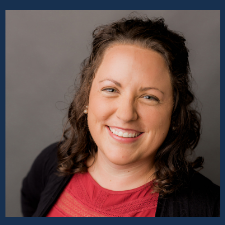 close
closeLydia Cox Hiesterman
Education
University of Illinois, B.S. Agribusiness, farm and financial management
Purdue University, M.S. Agricultural Economics
Completed the licensing required for current position with Thrivent Financial
Job Overview
I am currently a financial professional for Thrivent Financial and have been for three years. I work with my clients, many of whom are farmers to develop plans to protect and grow their assets. I am a wholistic financial planner. In addition to farmers, I also work with small business owners. I love helping farmers and small business people have a plan to protect their wealth and assets. I do that with tools such as life insurance, disability insurance and long-term care insurance. These instruments help pay off debt and keep the farm in the family for the next generation. It is fun to see people leaving a legacy to the next generation. I also farm with my husband.
Most Beneficial Class
The Farm Management class was the most beneficial class, because it helped me to see the long-term financial picture of a farm that I’m working with and what level of protection they need.
What class do you wish you would have taken?
Because my husband and I also farm, I wish I had taken more science classes to learn more about cropping and agronomy. I also think psychology classes and any classes that focused on people skills such as communication would help me in my current career.
Career Path
Prior to starting work for Thrivent, I had a varied career path. I was a grain merchandiser for Archer Daniels Midland during the time between earning my two degrees. After graduate school I worked for Kansas State University Farm Management Association as a farm economist. I then spent about six years working in Crop Insurance in Claims.
I felt I wasn’t fulfilled in that last position, but wasn’t really looking for something else to do. However, I received a letter from the current Thrivent representative who was serving our family at that time. Thrivent was looking for new representatives in the area. So, after 6 months of study and testing, I had all my licenses to begin my new career.
My new path really became meaningful to me when my father-in-law died from a farming accident in the middle of the licensing process. Our family’s representative called me the next day and assured me that he had helped my in-laws put things in place so that my mother-in-law would be financially OK. It was all taken care of and they were prepared for the worst and the worst happened. Especially after that point, it felt like a calling. I want to do this for other farmers. I believe I was put here to do this and I love it. It was a big risk because it is all commission and the success rate is low. But, I had reached my potential in my other job and I wanted to have my own business and this was my opportunity.
Average Day
I have control over my schedule and it can be flexible, but I am the business owner and I need to be open when I say I will. I try to work 9 to 5 Monday thru Thursday. I also always work one evening a week and sometimes on Saturdays. Occasionally if a church hosts an informational meeting, I go to speak at them on Sundays. I am most busy in the winter because many of my clients are affiliated with agriculture and so they have more time to meet in the winter and spring. When farmers are busy, my schedule is somewhat slower which works well because then we are busy on our own farm. I try to pick up the slack during that time by helping with farm work during the busy season.
I am actually an independent contractor with Thrivent and they do have a certain minimum that you have to meet. But I set my own revenue goals and all the office expenses are mine. Even though I am contracted with Thrivent, to sell their products, I could go through another broker to sell other products
What do you wish you would have known?
Because I want to try to serve people on their terms, I am super flexible with my appointment hours. I should probably be more set with my hours, but you do have to offer times that work for people that allow them to meet outside their work hours too.
I never thought I’d be doing something like this; I thought I’d be a bank loan officer or work for a huge agriculture company. But this allows me to be involved on the farm.
Advice for Students
Find someone successful in the industry and spend time with them. Look for a mentor in the area. Just go talk to them, people like to talk about what they do and how they’ve been successful. There could be an internship right next door that you’ll never know about because you didn’t ask.
-
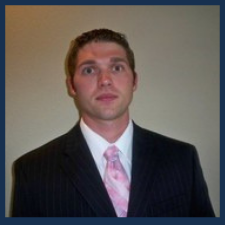 close
closeSeth Born
Education
Pittsburg State University, B.S. Finance
California State University, Master of Business Administration
Job Overview
I serve as the grain company controller I work with the accounting department and assist the CEO with the company’s accounting function. I have also recently become involved with the Human Resource function of our company.
Most Beneficial Class
My finance and management classes were the most beneficial classes along with some of the general economic classes that I took. The economic classes developed a foundation for understanding a variety of aspects in the industry, including commodity pricing and general business economics.
What class do you wish you had taken?
I wish I would have been able to take ag specific classes. I did not have access to them in college, so much of the ag specific knowledge I’ve gained has come from on the job learning, which at times has been challenging. I would liked to have taken more science-based or chemistry classes, which would have helped develop a solid base of knowledge around our agronomy services.
Career Path
After I graduated college I went to work as an auditor at Sprint in Kansas City. I served as various roles in a manufacturing facility, including human resource manager, production control manager and plant manager. After spending 10 years in manufacturing management, the controller position opened within Beachner Grain, which is based out of the area where I grew up. As I was very familiar with the company, I applied. I was hired at Beachner Grain and have been working here for the last three years.
Average Day
My work day is primarily from 7 a.m. to 5 p.m. depending on what all is scheduled that day. No day is ever the same, which is something that I like. Being involved in both accounting and human resources provides me the opportunity to work with a diverse group of people and allows me to spend time outside of the office, at our elevator facilities.
What do you wish you would have known?
There were not many surprises after coming into the controller position. I was familiar with the company before joining, and Mr. Beachner did an excellent job of describing the company and my job function during the interview process.
Advice for Students
I would tell college students to be open to any opportunity that presents itself, even if it’s not the exact job you thought you might take right out of college. Try something different and learn as much as you possibly can. Every experience you have will better prepare you for the next opportunity.
-
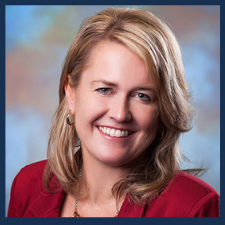 close
closeSara Girard
Education
Kansas State University, B.S. Finance
Kansas State University, Master of Business Administration
Job Overview
I currently am the President of Central National Bank which is a community bank just shy of a billion dollars in assets. We are based in the Midwest and have about 25 different community locations across Kansas and Nebraska. Around half of our communities are rural communities and our banks serve a lot of the agriculture industry through lending to both farmers and producers. We also have a farm management division that helps ag producers make decisions and maintain fields, along with that we also have a crop insurance business.
Most Beneficial Class
I would say that my accounting courses have been very valuable as I have gone on to bank management. My background in 4-H which would have been prior to college was extremely valuable to me from a communications and public speaking perspective as well as having knowledge of the ag industry.
What classes do you wish you had taken?
When I went back to get my master’s degree, part of the reason I did was because I realized I did have a few gaps in the underlying curriculum. I needed to fill those gaps with better marketing and accounting knowledge. I do, however, think that ultimately the most important skill you can have in business is being able to speak the language of your customers. As I think about in a student perspectives, we at the bank are looking to hire talented candidates who are able to walk out to a farm field and connect with a customers or perspective customers based on background and knowledge. To me that is highly valuable and is something that you cannot really teach.
Career Path
I started in the finance Industry and worked for Hallmark Cards for a few years. Upon graduating from graduate school I came to Central National Bank and worked my way up. We are a family-owned organization and I am a member of the 4th generation for bank leadership. It is certainly an honor to get to contribute to a company that our family has been part of since 1914.
Average Day
I am a beneficiary of modern technology. I am not only a banker, but my most important job is that I am a mother of two children. I am very fortunate that my employer gives me the flexibility to raise my children and do my job. Each day it is a mix between time in the office and the ability to log in remotely to my office and handle work tasks when I also might be busy with my kid’s activities. Therefore, a given day can have a different set of hours in terms of actually being in the office, but I do spend quite a bit of time at work logged in remotely. I do feel like there are a lot of opportunities for women in leadership positions with companies these days that were not previously available just because it was so tough to balance work and a home mix.
What do you wish you had known?
With any industry that you start in, you have college classes that are your foundation. However, you honestly have to start from square one to learn the ins and outs of management and effective strategies and most importantly how to manage people. I have really learned a lot about the importance of motivating staff members and making sure I do my job to keep them engaged and keep all of us driving the bus in the same direction. I would say that the people side of business is a critical part and it is easily overlooked.
Advice for Students
My advice to someone who wants to go into the community banking industry would be to develop your communication skills and your ability to work effectively with others, both with your coworkers and customers.
-
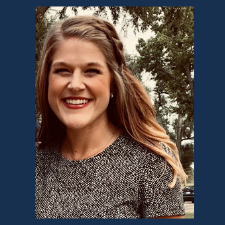 close
closeHeather Hill
Education
Kansas State University, B.S. Agribusiness with emphasis in finance; minor animal sciences and industry
Kansas State University, M.S. Agricultural Economics
Job overview
I am a Business Development Officer for American Ag Credit. American Ag Credit offers a wide range of financing for farmers, ranchers and agribusinesses. My primary focus is identifying and developing in our territory.
Most beneficial class
Agricultural finance with Dr. Shirley. Dr. Shirley had connections with American Ag Credit, and helped me land an internship with them while I was in college. I established a network of contacts in American Ag Credit during my internship, and it worked out because I am at the company today.
What classes do you wish you would have taken
Golf! Many business professionals, including farmers and ranchers, play golf with one another. I wish I would have taken this class to connect with them in both business and social aspects through golf games.
Career path
The first internship I had in college was with ConAgra Mills as a production packing intern. Even though this wasn’t the career path I ended up taking, it was a great learning opportunity. The next summer, Dr. Shirley referred me to American Ag Credit in Wichita. I really enjoyed the working there, and ended up taking a job after I finished both my undergraduate and master’s degree. I originally worked in the Wichita office first as a credit analyst then in a lending role as a customer account manager. Later I made the decision to relocate to the Garden City office as a loan officer. It was a step in the right direction for me and allowed me to be closer to my family.
Average day
My weeks vary. In general, I may be in our branch office one or two days of the week with the remainder of my time spent seeing customers and prospects or working from my home office. I believe that since our customers work hard running their operations, it is important we are flexible and available to meet with them where and when it is convenient in their schedule. I’m available at all times – whether that be early in the morning or late at night.
What do you wish you would have known?
Now that I have been with the company for 7+ years, looking back I wish I would have spent more time with mentors that are no longer with us. They meant so much to me, personally and professionally, and a few more moments with them would do us all some good.
Advice for students
Internships are key. College is the perfect time to get out and try new things to see what you like and where you fit in.
-
 close
closeNeely Kohmetscher
Education
Kansas State University, B.S. double major agricultural economics and animal sciences and industry
Job Overview
I am the loan officer for Swedish-American State Bank. We are a family owned ban. I work a lot with the agricultural loans along with consumer and commercial loans.
Most beneficial class
My accounting and ag business classes were the most applicable for what I am doing day in and day out.
What classes do you wish you would have taken?
I wish I would have been able to take more business or economic classes, these classes are versatile and would have served me well.
Career path
After graduation I worked for a grain co-op in Nebraska for a few years where I was able to gain experience. I then went on to work for a grain and hay farm as an office manger which allowed me to see the side of a producer. I have been working for Swedish-American Bank for three years now. I first started out as a loan assistant and then took over as a loan officer.
Average day
I often get into the office at 7:45 and the bank closes around 3 p.m. but I am often here doing extra work until 5 or 5:30. I only have weekend work if I am working with a special customer, which does happen. My days vary by who walks in the door.
What do you wish you would have known?
I think many may think that my profession is black and white, but it is not. I can often get invested in my customers and can become frustrated that they cannot see the whole picture, which can be difficult.
Advice for students
My advice for students is to stay well-rounded. Being able to see the whole picture of agriculture is important for every career in agriculture. Keep studying and keep inquiring about the world.
-
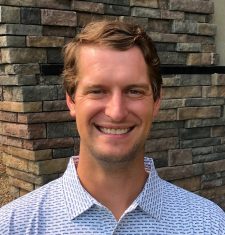 close
closeDustin Dibble
Education
University of Missouri-Kansas City, B.S. accounting
University of Missouri-Kansas City, M.S. accounting
Job overview
I am the international ethanol trade lead for POET Ethanol Products. We market the ethanol from our 35 biorefineries and transport the ethanol by rail to various export hubs. From there, we will load vessels and sell to a number of countries around the world.
Most beneficial class
My economics classes were the most beneficial. In the energy or commodities world, understanding supply and demand is critical in order to make good trading decisions.
What classes do you wish you would have taken
I would have taken more economic classes or even changed my major to economics. Understanding supply and demand and the fundamentals that drive economic decisions are key to my job. I also would have taken more international classes to help me understand the countries different cultures and how they communicate.
Career path
I started at Koch Industries as an entry level accountant. I then transferred to a marketing role for two years before I started my career at POET Ethanol Products. I first started on their grain team where we did strategic planning for ethanol plants. We determined how much corn to buy and at what times of the year.
Average day
I start my day in the office and will make three to five calls to people in the industry that I have relationships with. We will talk about the markets and what is going on in the industry. The ethanol industry isn’t very transparent, so it is important to build relationships to help yourself understand what is going on in the industry. I spend most days making ethanol sales and managing the total supply chain. While we are shipping ethanol, I must make sure all vessels and trains arrive to their destinations on time. It is important that we find new sales opportunities in the international space, but in order to do so, we must stay current and manage standards and certifications that allow us to ship to other countries.
What do you wish you would have known?
I wish I would have been a bigger reader growing up. I’ve taken on reading now, and it is amazing the wealth of knowledge and perspective you can pick up.
Advice for students
I would advise students to get involved in as many different things as possible, especially organizations and internships. In my experience, that’s what separates you from the rest.
-
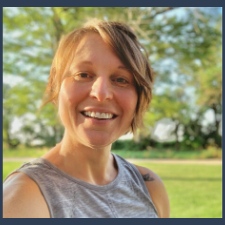 close
closeTatum Couture
Education
University of Kansas, B.S. Education, Community Health
Job overview
Tatum is a Marketing Consultant for AgMark, LLC. AgMark markets the grain for five member cooperatives and Concordia Terminal, a train loading facility. As a marketing consultant she provides information and insight into creating, evaluating and executing grain marketing plans that fit her customers operations.
Most beneficial class
My most interesting class was definitely Communicable Disease – but that is only relevant to my current role when H1N1 or African Swine Fever is happening and affecting the grain market. The most beneficial class was economics, simple supply and demand.
What classes do you wish you would have taken
I truly enjoyed both economics and marketing classes. I totally should have been an economics major!
Career path
My career path, like my educational background, isn’t “typical”. I have been the executive director for a non-profit organization, an insurance agent and a health and safety manager for an ethanol plant. It was at the ethanol plant that I had my first look working in the ag industry, not only as the health and safety manager, but also in grain origination and wet distillers merchandising. I enjoyed the working relationship with the area producers and feeders. I was fortunate enough to be able to use that experience to become part of the AgMark marketing team.
Average day
An average day consists of working closely with producers, reviewing their individual marketing that fit their operations. We watch the markets closely for any pricing opportunities to maximize their returns.
What do you wish you would have known?
I wish I would have known what I was going to be when I grew up!
Advice for students
Never rule anything out. Be open to new opportunities and new ideas. What you think you want now, may change later on in life.
-
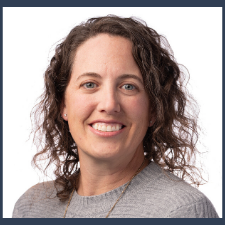 close
closeStephanie Symns
Education
Washburn University, B.S. in mass media, emphasis in broadcast journalism
Job Overview
I work with both crop hail and multi-peril appraisals. I can appraise corn, soybeans, wheat, and sorghum. As an adjuster I also handle prevent plant, plant claims, silage appraisals, production and revenue losses. I work in northeast Kansas, southern Nebraska, west towards Manhattan, as well as western Missouri.
Most beneficial class
I grew up on a farm, so I was familiar with the crops I work with today. I went through the crop adjuster proficiency program and earned my certificate at the completion of the classes. This was my training to become a certified adjuster. The class required 24 hours of classroom learning, 32 hours of field training, and also requires continuing education requirements every year.
Which classes do you wish you would have taken?
I wish I would have taken more agronomy classes. I have considered going back to school for agronomy to be more familiar with what I am adjusting. I do learn a lot on the job though, and my colleagues as well as farmers help me out with questions I have.
Career path
I previously worked for a television station in Topeka in until 2008. I then applied to a few adjustment agencies and got an interview with one. This was the first company I worked with as an adjuster.
Average day
My days are never the same! I am either at my desk verifying claims or outdoors doing field appraisals, taking prevent plant photos and working in the field. When I am not traveling, I am often working from home. I make my own schedule based on what claims are coming in and how high of a priority they are.
What do you wish you would have known?
I wish I would have known how many careers are available in agriculture. If I would have known how many opportunities there were, I would have majored in something agriculture related.
Advice for students
Research all career possibilities and network with everyone you can. Pay close attention to business decisions and how they could affect your future.
Career Profiles
Government and Policy
Those in the government and policy field typically hold positions such as government affairs manager, public policy manager, lobbyist, policy analyst and director of government affairs.
They often specialize in areas such as public policy, law and government. Common degrees in this field include public policy, political science, and law.
-
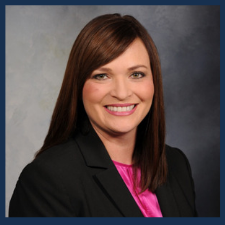 Wendee Grady Assistant General Counsel and Director Kansas Farm Bureau and Kansas Farm Bureau Legal Foundationclose
Wendee Grady Assistant General Counsel and Director Kansas Farm Bureau and Kansas Farm Bureau Legal FoundationcloseWendee Grady
Education
Kansas State University B.S. agricultural economics and horticulture
M.S. in agricultural economics.
University of Tulsa Law Degree
Job Overview
As assistant general counsel for Kansas Farm Bureau, I provide general legal advice to the corporation. As director of the Kansas Farm Bureau Legal Foundation, I provide education, information, and research on legal issues affecting persons directly engaged in agriculture or related enterprises, and advocate for the agricultural industry.
Most beneficial class
The most beneficial class I took was my agricultural law course as a college senior. Until then, I hadn’t really thought about being an attorney. I loved the topics and the challenge of the course and decided law might be a good career for me.
What classes do you wish you would have taken?
In each of my jobs, I could have benefited from more coursework in oil and gas and natural resources.
Career Path
Between education and work for my husband and me, we bounced back and forth between Kansas and Oklahoma a few times. I started out at a small law firm with a civil practice in Manhattan, Kansas, for my first two years out of law school. I learned from some great attorneys and it was a great way to get exposed to many different civil law matters. My next job, for five years, was at a large Oklahoma law firm in Tulsa. I had a mainly transnational practice, primarily in the areas of oil and gas finance and real estate. When we returned to Kansas, I had a great opportunity to work in agricultural law for a government agency for about two and a half years. Finally, I just recently joined Kansas Farm Bureau, and am really looking forward to continuing my work in agricultural law with Kansas farmers and ranchers.
Advice for students
Work hard and be nice to people. A couple of the career opportunities I have had resulted solely from a good resume and a decent interview. But, even with a strong resume, I experienced a fair bit of rejection when applying for jobs. A couple of my best career opportunities resulted from, or were at least greatly aided by, relationships I have built along the way. One more thing, if you are in a job you like, with people you like to work with, you are probably on the right track.
-
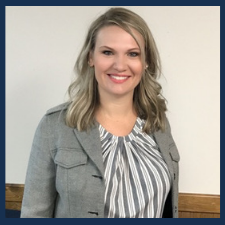 close
closeSarah Falk
Education
Kansas State University B.S. business administration
Job overview
I am the NE Kansas District Director for the Farm Service Agency (FSA) within USDA. FSA implements agricultural policy, administers credit and loan programs and manages conservation, commodity, disaster and farm marketing programs through a national network of local offices. In my current position, I oversee 14 offices within 17 counties in NE KS. I conduct office visits every week to support our local county offices and provide oversight for the programs and loans they administer to farmers and ranchers.
Most beneficial class
My most beneficial classes were communication and leadership classes. There is so much writing and interpretation of policy in my current position, along with public speaking, and both classes helped to prepare me for it.
Class you wish you would have taken?
I wish I would have taken an ag economics or ag business class. I focused my schooling on business and business management. In retrospect, I would have taken more ag business or ag economics classes to help me gain perspective through the ag side of the industry and take that into the business world. I did come from a family farm background and currently still farm, so I am able to understand these concepts, but I feel those classes could have benefited me throughout my career.
Career path
I started as a Program Technician for FSA in Doniphan County and continued in that position for about 1.5 years. I then applied for a one-year County Operations Trainee position and after that I went to several different locations in the capacity of the county executive director (CED) for the last 10 years. In October 2017, I applied and accepted the district director position. The knowledge and processes I learned throughout my first few years at FSA were extremely valuable for my future positions and roles within the agency.
Average day
I typically will get into work at around 7 a.m. I travel quite a bit making my rounds to 14 offices within my 17-county area. On the days that I am traveling I will leave around 6-7am, arrive to that county office and then begin to talk with staff and complete reviews. I will head home late afternoon and travel back to my headquarters office.
Once a quarter I travel to our state office in Manhattan where we have a collaborative meeting with our state office leadership. After this collective meeting, I then meet with all my local County Executive Directors and Farm Loan Managers to further communication for final implementation of these program changes in our local county offices who administer and promote them to our local farmers and ranchers.
What do you wish you had known?
I had no idea about the different programs and loans that FSA offers to local producers. There are so many different facets in the farming industry and to be able to offer assistance through FSA’s programs/loans when needed is wonderful. My eyes were opened a few years ago when we were implementing the Emergency Conservation Program in my county office after a localized flooding event. I had a local farmer tell me he would not be able to continue farming without the help of FSA and was expressing his appreciation for our work while pushing back tears. It was then I realized how much of an impact that our programs made with rural communities and individual farmers and ranchers. In addition to Farm Programs, FSA Farm Loans provide credit when applicants cannot qualify for commercial loans. It’s clear through the success stories of many of these operations, that these achievements would not have been possible without the help of the Farm Service Agency.
Advice for students
One piece of advice I would tell college students is to work hard and believe in yourself. Go that extra mile and people will always recognize you for that effort.
The views expressed are those of Ms. Falk and do not necessarily represent the views of USDA or its components. It is not an endorsement of the activities of any person or entity.
-
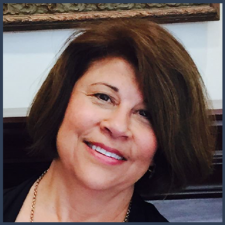 close
closeGina Bowman
Education
William Jewell College, B.A. public relations
Job overview
I work in government relations. The key responsibility is building working relationships with government officials at local, state, and federal level for clients. My career requires considerable communication skills.
Most beneficial class
In college, “the power of persuasion” and “argumentation and debate” were two communications classes that were most beneficial. Taking these courses helped me understand how to argue an issue on both sides and help influence understanding.
What classes do you wish you would have taken
Knowing more history and economics courses would have been helpful. Knowing history is helpful in any industry.
Career path
After college I worked for the largest federated farm supply and farm marketing cooperative at the time, Farmland Industries. While at Farmland Industries, I worked in the government relations division and started a national award-winning grassroots communication program. While at Farmland, I also started a state relations program that grew to 28 states and then lobbied on the federal level before starting my own business in government relations consulting.
Average day
There is no normal day for me, but I do make sure to read about current issues and politics daily. This allows me to keep track of what is going on at a federal, state, and local levels. One of my mentors taught me that “information is power.” So, reading daily was helpful in doing my job.
What do you wish you would have known?
I wish I would have studied in a way to better retain my homework during school. I wish I would have had better studying habits, instead of cramming for a test. Then the information I learned would have been better retained and recalled later.
As I stated earlier, “Information is power.” That is an important lesson I learned during my career. Another fact, “Perception is reality.” Always remember that reality is influenced by your perception. Thus, your culture, your family, your education, etc., will affect your perception and hence your reaction to the crisis you might face. This is the vital to know in the area of public relations.
Advice for students
Learn to communicate face to face and speak before groups (public speaking.) Speech classes are important in school and will carry you throughout your career. It is also important to understand history. Winston Churchill once said: “Those that fail to learn history, are doomed to repeat it.”
-
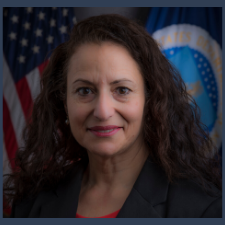 close
closeLynne Hinrichsen
Education
Michigan State B.S. animal science
Michigan State B.S. agricultural communications
Job overview
I currently serve as the USDA Rural Development State Director for Kansas. I oversee over 40 programs in rural areas, covering topics such as health care, education, housing, business development and infrastructure.
Most beneficial class
The most beneficial classes to me were my writing courses I took for my agricultural communications degree. I write emails, articles and letters as well as assist in grant and project applications. When aiding grant applicants I must help put together their thoughts and their plans in written form.
What classes do you wish you would have taken
I wish I would have taken more international agriculture and agriculture policy courses.
Career path
After college, I began working in the meat packing industry in the sales and marketing department. I also worked for breed associations in marketing and advertising. I then started my own business in staffing and human resource consulting for 13 years. After I sold my business, I started working for Kansas Department of Agriculture in the marketing division and oversaw agriculture business development, before starting the position I am at today.
Average day
I am heavily involved in the outreach and marketing of rural development for Kansas. I travel to different offices in Kansas to look at projects around the state usually at the beginning and finishing stages. I also do a lot of public speaking and presentations to rural communities and economic developers to explain the resources available through USDA Rural Development and our partners. I currently have 40 staff members to assist the people of Kansas.
What do you wish you would have known?
I was set on one career when I started college. I wish I would have gone in with more of an open mind as to the other careers available in agriculture. I wanted to be a veterinarian so I could work with cattle and horses, but I realized there were many other opportunities to work in a lot of areas in the agriculture industry. It may not have taken me so long to figure out a career path and allowed me to finish school closer to the four-year mark.
Advice for students
Have an open mind and take a variety of classes to see what career path really appeals to you. Don’t be afraid to move away from home. You can always come back. Traveling will help you realize where you want to be and want you want to do.
-
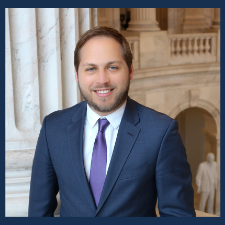 Wayne Stoskopf Director for Public Policy for Risk Management and Tax National Corn Growers Associationclose
Wayne Stoskopf Director for Public Policy for Risk Management and Tax National Corn Growers AssociationcloseWayne Stoskopf
Education
Kansas State University, B.S. Agribusiness, international option
Job Overview
I am the Director for Public Policy for Risk Management and Tax for the National Corn Growers Association, located in Washington, D.C. I am on the federal lobbying team for NCGA and am the lead policy staffer for our grower-led Risk Management & Transportation Action Team.
Most Beneficial Class
My agriculture policy class was my most beneficial class for my current role working with government and policy. My study abroad trips also really helped me gain important experiences and perspectives about agriculture around the world.
What classes do you wish you would have taken?
I wish I would have taken more political science courses as I only took one, Kansas Politics. If I could do it all again, I would take more business classes outside of the minimal requirements such as tax and marketing.
Career Path
In college I interned with Congressman Jerry Moran in his Washington, D.C. office and after college I worked on his Senate campaign. In 2011, I moved to Washington, D.C. to work for Representative Lynn Jenkins and after a year and a half I shifted to Senator Pat Roberts’ office. When he became Chairman of the Senate Committee on Agriculture, Nutrition, and Forestry, I was able to serve on the Majority committee staff. I had the opportunity to join NCGA this year.
Average Day
My day to day focus is on farm bill programs, commodity and tax programs, and tax policy. I interact with Congress, USDA, farm service agencies, national and state association staff, and growers across the country. My calendar gets filled with a good mix of internal conversations, lobbying on Capitol Hill, and administrative work.
What do you wish you would have known?
It is okay to have long term goals and aspirations, but to not have a real developed plan on how to get there. There are a lot of career paths and journeys that you can explore through internships, entry level jobs, and being open minded when opportunities present themselves. When you challenge yourself to take on new roles, you will see how well your experiences have prepared you.
Advice for Students
Push yourself to develop friendships and relationships with people who have different backgrounds and perspectives than yourself. Not only will you have interesting conversations and grow as an individual, you can gain the ability to see the world through a wider point of view.
-
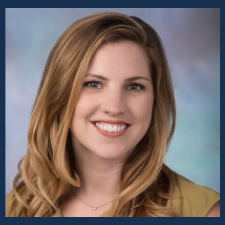 close
closeAllison Nepveux
Education
Texas A&M University, B.S. Agribusiness, , minor in Spanish, certificate in international trade and agriculture
Job Overview
I am located in Washington D.C., and work for U.S. Grains Council, which develops markets for corn, barley, sorghum, ethanol and co-products overseas. As the manager of trade policy, I work on technical barriers to trade like biotechnology, crop protection and other new innovations that farmers depend on. I think about how other countries treat these technologies and the programs or policies that can be implemented to keep trade flowing. I often write official comments and letters to the governments of other countries and have meetings in-person. My goal is to give perspective on how agriculture production in the U.S. operates. We also bring folks from other countries over to the United States to show them our technologies and production practices.
Most Beneficial Class
My most beneficial class was strategic management. It taught me how to think strategically in different situations. My international trade class was also beneficial and helped me understand how trade agreements work and how we got to the structure we have today.
What classes do you wish you would have taken?
For my role, it would have been beneficial to take plant breeding classes and take more specific crop production classes, such as soils and range management.
Career Path
After college, I wanted to experience living and working in other country. I moved to France for one year for work. When I moved back to the United States, I worked as a commodity broker, focused on bulk grains and cotton. After that, I moved to Washington D.C., to work for the produce industry. I worked on finding new supply chain technologies that could solve their challenges, like blockchain and robotics. I am now in trade policy, focused on the regulatory environments that might make it harder for innovation to be developed and adopted.
Average Day
I spend a lot of my time video chatting to overseas markets and other partners. I tend to have a lot of meetings throughout the day to keep track of the regulatory environment and work with our partners through a variety of coalitions. I also manage programs that we have through ag trade promotion that are focused on smoothing out regulatory barriers.
What do you wish you would have known?
When I was in college, I was very focused on getting to my goals as quickly as possible. I felt like I had no time to do all the things I wanted – and there especially was no time for choosing the wrong path! Now, I realize that there is plenty of time. The most beautiful parts of careers – and life! – are the unexpected detours we take.
Advice for Students
Dive deep into subjects you might find interesting, even if it isn’t immediately apparent how it applies to your career path. Get a combination of knowledge. Explore! In college, you have the chance to find so much more than just the career you want. Find hobbies and interesting people. Try things, fail at things and try again! One day, it will all form the building blocks of your career and your habits.
-
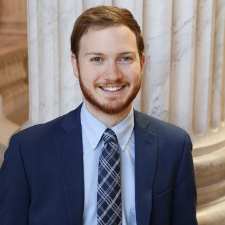 close
closeChance Hunley
Education
Kansas State University, B.S. Agriculture Communication & Journalism
Job overview
As the Legislative Assistant for Representative Jake LaTurner, I handle agriculture, energy, environment, trade, transportation and infrastructure portfolio issues. In addition, I staff the Congressman on issues pertaining to the House Committee on Science, Space, Technology and help prepare reading materials for current and ongoing issues for staff.
Most beneficial class
Without a doubt, the most beneficial class I took was agricultural policy with Dr. Barry Flinchbaugh. Dr. Flinchbaugh did an exceptional job in explaining how D.C. works, the basis of agriculture policy and farm bill protocol.
What classes do you wish you would have taken?
In general, I wish I would have involved myself more in depth on farm policy classes to gain a greater understanding of the futures market, farm bills and production economics.
Career path
In college, I had the opportunity to intern with the Pinto Horse Association of America, Inc. as well as work for the Kansas FFA Foundation Inc. during my junior and senior year. Immediately after graduating, I started in 2017 at a Staff Assistant and Legislative Correspondent in Washington, D.C. for Chairman Roberts on the Senate Agriculture Committee. While I was still serving on the committee, I served as a Legislative Assistant until Senator Roberts retired. In 2021, I started as the Legislative Assistant for Representative Jake LaTurner.
Average day
On an average day when Congress is in session, I will draft memos for bills that will be coming to the floor, prepare questions and remarks for upcoming committee hearings and take constituent meetings with groups who want to provide updates on their specific issues.
What do you wish you would have known?
Be prepared and open for new opportunities. Coming to D.C. was not my first choice after college, but I am incredibly grateful that I took it. Looking back, I wish I would have searched out opportunities I would not have immediately thought of.
Advice for students
Some advice for students would be to always be making connections! Connections and networks keep you grounded and connected to the rest of the world. Additionally, if I have learned anything throughout COVID-19, it is the importance of investing time not only in others- but yourself. Find hobbies outside of work, do things you enjoy and continue to better yourself for your future career. The adult world does not take breaks, so it is critical for you to find time for yourself.
Career Profiles
Livestock and Feed Science
Those in the livestock and feed science sectors typically hold positions such as livestock manager, sales representative, livestock buyer, finance and marketing specialist, extension agent, research scientist, market analyst, animal care giver, quality control specialist and veterinarian. They often work for feed companies, processing plants, livestock commodity organizations, animal health firms, private veterinarian practices and product development companies.
They often specialize in areas such as breeding, health, feeding, nutrition, management, processing and management of various animal breeds and species. The pet foods industry is a growing career field within this section as this consumer market continues to expand. Common degrees in this field include animal sciences and industry, feed science and management, food sciences and industry, veterinary medicine and other sciences.
-
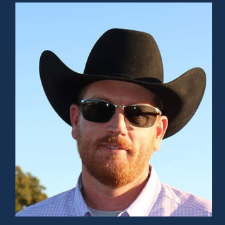 close
closeShawn Tiffany
Education
Butler County Community College for two years on a livestock judging scholarship
Kansas State University, B.S. Animal Sciences and Industry
Job overview
My brother and I own a custom cattle feeding company. We have two yards with a capacity of 32,000 head of cattle. We have a cover crop grazing program that we use as a part of our nutrition program. Some of my main responsibilities include managing the farm, acquiring commodities, animal nutrition and along with all of that I serve as the HR staff keeping track of the employees and any government regulations paperwork.
Most beneficial class
I would say my studying of nutrition has served me well in my career and has made my job a lot easier. Although it was the connections and the relationship I built in college that have been the most beneficial to my career.
What classes do you wish you would have taken?
The skills that I learned in college to study and research has helped me learn as an adult, but I wish I could have taken a few more agronomy courses while in college.
Career path
After college my first job came through networking. I knew the right people and they knew what I was interested in, and I had the opportunity to serve as a manager of an Angus ranch. While working hard in my position as manager, someone took notice and valued my hard work. My brother and I were then offered a deal to start our own cattle feed yard, the deal was made with a handshake and collateral. We opened in 2007, and I have been working with my brother, Shane, ever since.
Average day
I am working with cattle, so my job never really stops.
What do you wish you would have known?
My father instilled the idea of having a hard work ethic into my head from an early age. I never realized though how important that was and how it would help set me apart in my career. Now as an employer, I realize how important work ethic and attitude is. I can teach employees the knowledge they need to do their job, but the employee has to make the decision to have a strong work ethic and the right attitude.
Advice for students
My advice would be to have a strong work ethic and build up that skill. Also, I think students often forget how many opportunities in agriculture there truly are. Everyone is going to eat tomorrow, and you can make a difference at any point along that chain.
-
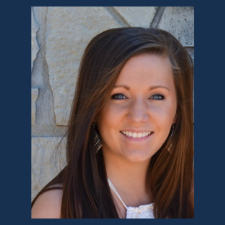 close
closeEmily Meenen
Education
Kansas State University, B.S. in agribusiness
Job Overview
I am an animal formulation specialist for Cargill. I am the middleman between the sales department and the plant that produces feed for dairy cows. I serve as a checkpoint to make sure that feed is both legal and safe to be produced.
Most beneficial class
Other than my animal science classes, commodity futures. This class is beneficial to my job today, because I work with merchandisers and it’s helpful to know how they are buying the ingredients I work with every day.
What classes do you wish you would have taken?
Principles of Feeding. I’ve always had a passion for animal agriculture and the reason I took a handful of animal science classes, but if I would have known my job would end up dealing a lot with animal nutrition I would have taken more nutrition courses.
Career path
I had two management associate internships with Cargill while I was in college, one in Washington and the other in Pennsylvania. I established the connections that helped me get these internships when I was a College of Agriculture ambassador. After graduation, I started in the management associate program in Amarillo, Texas. I then moved back to the Kansas City area and now work in my current position.
Average day
I am in the office for two days a week from 8 am to 5 pm. The other 3 days a week, I am working at home from 7 am to 4 pm. I work from home since I live an hour and a half from the office, and I work 7-4 because I work with plants in the eastern time zone. A typical work day involves processing diet changes, temping ingredient outages, maintaining ingredient/nutrient integrity and formula health. I do not typically work on the weekends – however, if the plant is open, I would be on call if they needed something.
What do you wish you would have known?
Getting good grades was a goal I had for myself, but looking back I stressed too much about it. The organizations I was apart of, the people I met, the relationships I had with my professors all got me a lot further than my GPA ever did.
Advice for students
Try to take as many different classes within the College of Agriculture as possible! Agriculture is a constantly overlapping industry. The more well-rounded background knowledge you have, the better. But also understand that what you learn in the classroom will only take you so far, get out and network, get involved in organizations. Relationships are huge in the agriculture industry.
-
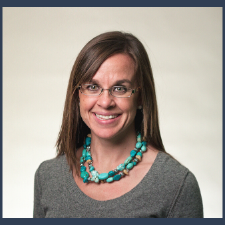 close
closeMary Soukup
Education
Kansas State University, B.S. Agricultural Communications, Minor in Contemporary Citizenship in Agriculture
Job Overview
Managing Director of Beef Alliance. I began working for the Beef Alliance in January 2019 and work with the ten member companies of the Beef Alliance.
Most Beneficial Class
There are a few courses that were important to my career today. The first is ag policy. The knowledge of federal and state policy – especially the processes that are employed to implement laws and regulations and the myriad of statutes that affect food and agriculture – those lessons I really prepared me for my career. The other course that’s helped me was one related to ethics in animal agriculture. This class helped me develop critical problem solving and analytical skills that are critical each day.
What classes do you wish you would have taken?
I’m always looking to learn more, but today I wish I would have taken more ag econ or ag business classes.
Career path
After taking a summer internship in Washington D.C., I knew I had caught the “Potomac Fever.” I wanted to move back and work in D.C. after finishing my education. I graduated in 2007 and moved to Washington, D.C. I stayed there for five years, but I knew I did not want to live there forever. In 2012, I came back to Kansas. Professionally, I had the opportunity to serve as the communications director for the Kansas Department of Agriculture. My roles changed at KDA, but my final position was that of Assistant Secretary. In 2018, I was introduced to an opportunity with the Beef Alliance – it seemed a good fit for my skillset and previous experiences, and a tremendous opportunity to grow professionally. That’s where I am today.
Average day
My days are never usually the same. I have a home office that I operate out of as well as an office in Manhattan. My hours are flexible when I am at home – I can work early in the morning, late in the evening, as well as on weekends if I need to. But I can also take a break and run to pick up my kids or throw in a load of laundry if that needs done as well! When I am in my office in Manhattan, my days are typically a normal 8-5 schedule. My current job is great because of the added flexibility I have with my being available to my family.
What do you wish you would have known?
I grew up on a cow calf operation and today I ranch with my husband, and every job I have had previously ties back to beef. However, I do continue to learn new things about cattle feeding every day through the Beef Alliance. I had a good base understanding before, but there is always more to learn. My current role also challenges me in the areas of organizational leadership, business management and consensus building. Every day offers me an opportunity to grow and learn as a professional.
Advice for students
Be humble, work hard and be on time. My first job out of college helped me to realize that paying your dues to prove you are a hard worker is a huge part of success.
-
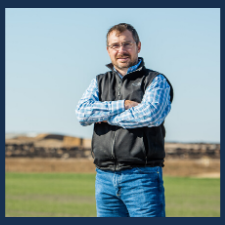 close
closeBrandon Depenbusch
Education
Kansas State University, B.S. Animal Sciences and Industry
Kansas State University, M.S. Animal Science and Industry
Kansas State University, Ph.D. Animal Science and Industry
Job Overview
My job is to provide operational organization to our cattle feeding operations and several of our supporting companies. I am responsible for setting and evaluating company performance and financial objectives. I also oversee our Research & Development (R&D) program and am constantly analyzing data and trends. Overall, I see my main function as a support mechanism for our great management team.
Most Beneficial Class
Nothing can replace the education and experience I have received from the real world. Operations Management and Analysis (Management 810) helped me develop a strong foundation for analyzing operational data and graduate school seminar (ASI 990) prepared me for organizing and presenting data.
What classes do you wish you would have taken?
Looking back, I wish I had taken some supply chain management classes and more in-depth macroeconomics classes.
Career Path
Early in my career I started out working on special projects, data analysis and R&D projects. Overtime I have transitioned to my current leadership role and spend less time on hands-on data analysis and R&D projects.
Average Day
Every day is different, and I really enjoy that aspect of my job. It’s important to have a firsthand knowledge of the conditions at each operation so I balance my time between my office and time with staff at the different locations. I try spending at least a day and half a week observing and visiting with the teams at each of the operations.
What do you wish you would have known?
I wish I would have understood the importance of soft skills (communication, teamwork, adaptability, interpersonal skills, etc.) early in my career. In the past, I have tended to put too much emphasis on knowledge and technical expertise, but these aren’t worth anything if you can’t relate and communicate with others. The education process equips you with knowledge and technical expertise, but you must invest in yourself to develop your soft skills.
Advice for Students
Be hungry, humble, patient, and self-aware. The turning point in my career was when I stopped focusing on my career goals and objectives and turned my focus to helping my peers, subordinates, and bosses achieve their goals. I realized that if they are successful, then I would be successful. A rising tide lifts all ships.
-
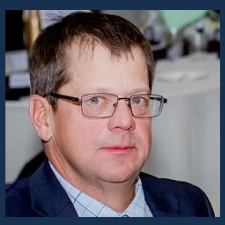 close
closeTerry Ohlde
Education
Kansas State University, B.S. Animal Sciences and Industry, business option
Job Overview
I am an elite account manager for Alta Genetics. I consult with dairies regarding reproduction and genetics. I cover a large territory including Kansas, Missouri, Nebraska and Texas.
Most Beneficial Class
I had several classes that benefited me throughout my career. Anatomy and physiology, feeds and feeding, dairy management, marketing class, and principals of genetic were just a few.
What classes do you wish you would have taken?
I wish I would have taken more business and accounting courses to help with my record keeping.
Career Path
After college I spent a couple of years working in dairy sales. Specifically, at dairy sale auctions and consignment sales. I then spent the next ten years working for Kansas Dairy Herd Improvement Association. I traveled to dairies monthly to collect data that would later get analyzed.
Average Day
My days starts early, around 4-5 a.m. I travel to dairy farms and spend the mornings walking cows with workers. I review and evaluate the AI records, techniques, cow health, facilitates, and their workers. In the evenings I have meetings where I create a genetic plan for the dairy. I also will do more consulting on how to manage the dairy’s genetics.
What do you wish you would have known?
I would have done more internships because, I always went back to the farm during the summers. Having internships would have allowed me to have different perspective on the industry and allow me to learn about the different opportunities. I would have also taken more credit hours earlier on in my college career.
Advice for Students
Do as many internships as you can and do them in a variety of areas. Don’t get too focused on one area. Go to work and do the work. Have a strong work ethic and have a willingness to learn.
-
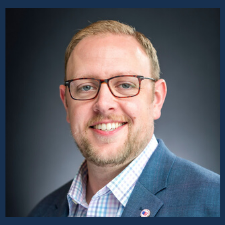 close
closeTravis Arp
Education
University of Missouri, B.S. Agriculture Economics
University of Florida, M.S. Meat Science
Colorado State University, Ph.D. Meat Science
Job Overview
I work at the United States Meat Export Federation in Denver, Colorado as the Senior Director of Export Services and Market Access. I work with USMEF exporter membership, including packing and trading companies to assist them in technical issues in getting read meat products to international markets. I also help them understand export regulations for certain countries. We do whatever we can do to make the process of exporting more streamlined and represent the red meat industry on their export needs.
Most Beneficial Class
I took several international business and trade classes both at the undergrad and graduate level. It helped me better understand global economics and how market and trade works economically. My core meat science classes were very beneficial for interpreting the technical issues that face the meat industry such as meat quality.
What classes do you wish you would have taken?
I wish I would have taken more general business classes. A lot of people that work in the industry have a more business focused background and I think taking a few MBA courses help you understand the transactional dynamics in a sales or marketing perspective. It also helps you get a mix of the technical side and business side of the industry.
Career Path
After my Ph.D I immediately started at the Meat Export Federation. I held a few other positions prior to senior director and I worked my way up through promotions within the organization. A lot of that time was spent learning the business of international trade. There isn’t a lot of classes that would have really prepared me for the position I am in today. I started at a manger position and got a better feel for markets and export industry. It took 7 years before I got to the Senior Director level.
Average Day
Every day is different. A lot of what we do is responding to our members issues. One of our members can call in with a new issue so then we must re-prioritize our day. I look at what the issues are and respond to those as we need to. I also have a lot of long-term projects that require research and collaboration with other organizations or companies on the best way to resolve those issues.
What do you wish you would have known?
Ultimately you can take a lot of classes and you can have a specific focus for your education, but don’t expect that it will entirely prepare you for your future career. The scope of information you need to know for your job will be much broader than what you will learn in a classroom and it often comes with experience.
Advice for Students
Explore any and all opportunities. What you think you want to do when you start college can be very different from what you do when you end college. Diversify your experiences. Take the opportunity to explore all options that are out there and network.
-
 Greg Aldrich Research Professor and Pet Food Program Coordinator Kansas State University Dept. of Grain Science and Industryclose
Greg Aldrich Research Professor and Pet Food Program Coordinator Kansas State University Dept. of Grain Science and IndustrycloseGreg Aldrich
Education
Kansas State University, B.S. Animal Science and Industry
University of Missouri, M.S. Ruminant Nutrition
University of Illinois, Ph.D. Animal Nutrition
Job Overview
I am a research professor and pet food program coordinator in Kansas State University’s Department of Grain Science and Industry. In that role I have helped establish a pet food program at K-State, which is one of the first universities to put a focus on pet food and nutrition for companion animals like dogs and cats. With this we created a research group to explore how processing (cooking) effects nutrition, shelf life, and safety of pet food. Cooking pet food through processes such as extrusion, canning or baking can alter each of these important aspects. On the education side I have helped to establish course work for undergraduate and graduate students. We have also established a minor in pet food science, and an option in pet food production for feed science majors. I also do a lot of professional outreach to the pet food industry.
Most Beneficial Class
The most beneficial class to me was Feeds and Feeding. I started school as an engineer, but after taking this class everything seemed to click – I realized then that I wanted to be in the animal nutrition industry. My career path hasn’t wavered since.
What classes do you wish you would have taken?
I wish I could have taken Feed Technology.
Career Path
Out of K-State my first job was in feed sales. This sealed my interest in animal nutrition. Upon completing the PhD my first professional post was in pet nutrition and food product development with a pet food company. This is an area I have enjoyed for the remainder of my career, because it is very dynamic, and every day is different. Beyond products I’ve also had the opportunity to develop expertise evaluating ingredients, shelf life, and food processing. My wife and I started our own nutrition consulting company in the early 2000’s. As a consultant a number of my projects required me to use the food processing equipment at Kansas State. That is how I got re-connected with the University and eventually joined the faculty.
Average day
I start my workdays about 7:30 a.m. and get my day organized to identify what projects need to be accomplished and make plans. No two days are the same. In part because I work with students and companies that are interested in sponsoring research. I actively oversee graduate student research in the lab producing and analyzing pet foods and we manage dogs and cats in feeding studies to help us evaluate those foods. I also spend a great deal of time writing research proposals, scientific manuscripts, creating presentations, and planning lectures. The day closes-out around 6:00 or later and it’s on to the next.
What do you wish you would have known?
I didn’t realize coming from a farm community what consumer packaged goods were. There is a need for us to integrate the things we do in agriculture to connect with consumer needs. I wish I had learned more about consumer-packaged goods before I came to college.
Advice for students
Go out and explore all sorts of opportunities. Then, mentally go back through your life’s experiences and find what you were really interested in -then consider following that path.
-
 close
closeKimberly Young
Education
Pittsburg State University, B.S.
Job Overview
I am president of the KC Animal Health Corridor. The Corridor is a not-for-profit organization that supports the growth of existing animal health and nutrition companies in the Corridor region as well as attracts new companies and investments to Kansas City. The four strategic priorities of the Corridor are 1) engagement of the global industry with Kansas City 2) workforce development 3) public policy and 4) supporting innovation/entrepreneurship. As president of the organization, my primary responsibilities are managing the advisory board, setting team expectations, developing strategy, and ensuring that we meet annual organizational goals.
Most beneficial work experience?
Before working in the public sector and for a not-for-profit, I started my career working for a private sector healthcare company. Working in the private sector gave me invaluable experience and insights into the challenges and demands private companies have placed on them. My first career opportunity in the public sector was for the Kansas Department of Commerce. Having previous experience in the private sector allowed me to understand the needs of the companies that I was serving.
After working for the Kansas Department of Commerce, I had the privilege of working in Wichita. This opportunity allowed me to work closely with the aviation cluster in the region and taught me how to foster the growth of an economic cluster.
Private and public sector (for both Kansas and Missouri) experience coupled with the experience of cluster economics, gave me the foundational skills needed to lead the Corridor. I am blessed to have had the opportunity to serve the three A’s of Kansas – aerospace, agriculture and animal health.
Career Path
After graduating from Pittsburg State University, I went to work for a healthcare company headquartered in Kentucky. One of the responsibilities that I had was community outreach. This outreach and networking allowed me to connect with community leaders. I quickly formed an appreciation for the important relationship between the private and public sector. When an opportunity to work for the Kansas Department of Commerce was available, I quickly accepted. I knew working with businesses across the state is where my passion was. This was the start of my career in economic development which has led me to working for the State of Kansas, State of Missouri, Wichita and now in the Kansas City region as president of the Corridor for the past nine years supporting the growth of the animal health industry.
Average Day
There is no average day. In any one day, I will meet with board members, investors, companies considering relocating or expanding to the Corridor region, managing media/PR, planning events, coordinating policy efforts, social media and more.
What do you wish you would have known?
I wish I would have studied abroad during college to experience different cultures, lifestyles and have exposure to international business.
Advice for Students
Get outside of your comfort zone and broaden your experiences. Be open to opportunities. When opportunities are presented, never say no immediately. Have a conversation and learn more about the experience. Stretch yourself and don’t close doors.
-
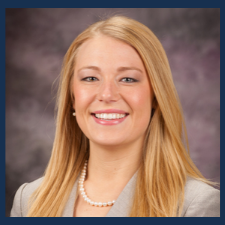 close
closeKassie Long
Education
Kansas State University, B.S. Food Science
Kansas State University, M.S. Ag Economics
Job Overview
I am a Customer Marketing Manager. My role at Cargill Protein is to support our retail sales team as they ensure customers understand the value, we can provide to them as a company.
Most Beneficial Class
My most beneficial class was food and agribusiness strategies. We had real life case studies and it helped me understand the concept of strategic thinking in solving real world issues. I still think back to this class in my role today.
What classes do you wish you would have taken?
I wish I would have taken more business and finance classes.
Career Path
After my masters, I started with Cargill as a management associate and learned how the company worked as a whole. I started with turkey and cooked meats business and worked on projects that helped me get acclimated to the business and helped me understand the different parts of the industry. I then transitioned to a marketing associate role within Cargill and have been in marketing ever since. I was an associate brand manager then brand manager for the turkey brands before transitioning to my role today as a customer marketing manager.
Average Day
I manage a team of three other people and work with them on various projects and initiatives focused on enabling our sales team to better serve our customers. We work with our retail sales lead and their team to learn how we can better support them with meaningful tools, experiences, and content. We spend a large part of our time developing best practices, helping design and execute customer meetings, and creating tools that showcase Cargill capabilities. We want to make sure customer engagements are successful and that we are appropriately showcasing Cargill’s value to our customers.
What do you wish you would have known?
I wish I would have realized that it is harder to travel once your career is started and you are starting a family. I wish I would have taken advantage of the flexibility of college and completed a semester long study abroad.
Advice for Students
Take advantage of as many learning opportunities as you can. Find out what you like and what you don’t like and don’t be afraid of failing. You will still learn from that experience.
-
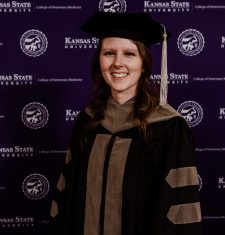 close
closeMeredith Waggoner
Education
Kansas State University, B.S. Biology
Kansas State University, Doctor of Veterinary Medicine
Job overview
As a mixed animal veterinarian in western Kansas, no two days at work look the same. I treat a variety of species, including dogs, cats, cattle, and the occasional horse, sheep, or goat. I also see a handful of exotic species, including rabbits and hamsters. The clinic I work at has both small and large animal handling facilities, and we provide a wide array of small and large animal services.
Most beneficial class
The most beneficial class I took in undergrad was Anatomy & Physiology (Animal Science course). It prepared me for veterinary school, and I learned so much during that class.
What classes do you wish you would have taken?
Since I majored in Biology instead of taking the animal science track in the College of Ag, there are some animal sciences classes I wish I would have taken, however they would have been required courses for someone majoring in animal science and planning to go to veterinary school. I cannot think of any specific classes off the top of my head, but I did not grow up on a farm or with large animals around, so I would have benefitted from taking those classes in undergrad.
Career path
I shadowed at the clinic I now work at for several years (while I was a student) before being hired on as a full-time associate veterinarian. Since I just graduated in May of 2020, my career path is still quite short thus far. I started working at Oakley Vet Service the Monday after I graduated veterinary school the previous Friday in May of 2020. I did not decide I wanted to be a veterinarian until my junior year of undergrad. I switched majors four times before deciding to apply to veterinary school.
Average day
As I mentioned earlier, there really is not an “average day” because every day brings in a new patient with a new problem. In general, I do either small animal surgeries or small animal drop off appointments (on an alternating-week schedule) in the mornings. The afternoons mostly consist of small animal appointments, but I am starting to work into seeing more large animal appointments in the afternoons when I am able. There are always emergency add-ons that we work into our days. Every other week I am on call in the evenings and on the weekends, so I generally have a phone call or two and often see emergency cases in the evenings and on weekends. The hours are often long, the work is hard, but it is an extremely rewarding job to save an animal’s life.
What do you wish you would have known?
Something I wish I would have known is that my undergraduate years were going to be some of the absolute best years of my life. I wish I would have taken more time to go out and have fun and not stress so much about my future, what I wanted to do, and eventually getting into veterinary school. I would go back and re-live my college days in a heartbeat if I could. It is one of those “you don’t know what you’ve got until it’s gone” type of situations.
Advice for students
My best advice is to work hard in classes but know when it is time to take a break and have fun. Try to not take yourself too seriously – college is about making mistakes, learning from them, and not being too hard on yourself. I especially feel for those who are undecided about their career choice. I would encourage those students to take a bunch of different classes that interest them and shadow as many professionals as possible in different fields they think they might be interested in. The only way you can picture yourself in a career, is to shadow someone who does it.
-
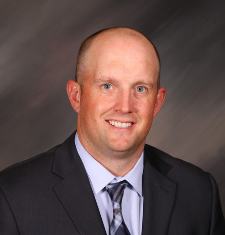 close
closeShane Terrell
Education
Chadron State College, B.S. Biology
Kansas State University, DVM/PhD
Job overview
As a Feedlot Veterinary Consultant for Production Animal Consultation (PAC) I serve producers in Nebraska, Kansas, and Colorado. My goal is to work cooperatively with my clients to improve the financial sustainability of the operations through improved animal wellbeing, health, and performance through improved disease prevention and treatment. This is accomplished through crew training on diagnosis, case definition, animal handling, and animal care. Additionally, I provide data services to help identify problems, create solutions, and educate team members.
Most beneficial class
There were countless classes that were important to my current career, including any of the production medicine classes in the veterinary curriculum. However, the class that may have been as beneficial that was a non-veterinary class was a class taught by Dr. K C Olson, Energy Utilization in Livestock systems. This class really helped me bring me good perspective the nutrition cattle nutrition on a whole animal level and it has certainly been beneficial in my career.
What classes do you wish you would have taken?
I do not know if there are any specific classes that I feel like I missed out on. I am thankful for taking a lot of classes outside my major of area of focus, including economics and even the humanities. Undergraduate education should really be in a pursuit of a breadth of knowledge. Your career, professional school, or graduate school will give you the opportunity to gain the depth of knowledge needed in your specific field.
Career path
After graduating from K-State with my DVM, I began working immediately for Production Animal Consultation (PAC). However, I had opportunities to work as a research and development intern for what was then Pfizer Animal Health two different times, had countless veterinary internships and externships, and opportunities to work within production agriculture for many years prior to veterinary school.
Average day
No two days are ever the same, but I am always on the road visiting feed-yards where I will spend most of my day. I typically begin my day by meeting with the feedyard manager to discuss any pertinent concerns or issues. Then I spend the day working with the animal health crews addressing specific cattle concerns, and issues pertaining to animal health and wellbeing. Other days are focus on research, in which we design and facilitate field research.
What do you wish you would have known?
I wish I had understood and appreciated all the different people that are involved in agriculture. It is an amazing group of people and diverse in background and experience. With that, I wish I would have understood earlier the value that being multilingual brings to teams and operations. It is amazing to see the value that my team members with those skills bring to operations.
Advice for students
Some advice I have for students would be do broaden your horizons outside of your major and interests. If you are interested in veterinary medicine take classes outside your direct interest, such as a few economic and agronomy classes. Classes outside of your major will help you in your future professional career by having a breadth of knowledge and improving your knowledge of all systems.
Career Profiles
Marketing and Communications
Those in the communications and marketing sectors typically hold positions such as marketing specialist, editor, news broadcaster, event planner, photographer, director of communications, staff writer, public relations director. They work for a variety of agricultural associations, agribusiness and trade publications, trade organizations and government agencies.
They often specialize in areas such as communications, marketing, public relations, advertising, design, photography, writing and digital media. Common degrees in this field include agricultural communications and journalism, agribusiness, marketing and communications.
-
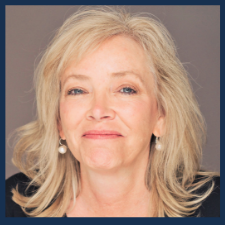 close
closeJenny Pickett
Education
Creighton University B.S. journalism and advertising, minor in marketing
Job Overview
I serve as the CEO/executive director of NAMA, which is a nonprofit organization that exists to enhance member’s professional growth in agri-marketing and to promote agribusiness as a career. I execute the volunteer leadership plan, program content, recruit new members, and plan the annual meeting. I create the leadership development programs and ensure they run smoothly. I am also in charge of the NAMA foundation, which is the foundation for scholarships, and collegiate programming’s. NAMA is responsible for National AG day and I lead the efforts for that event.
Most Beneficial Class
I believe my journalism classes were most beneficial as I was able to practice and perfect my writing and editing skills. These skills may seem basic, but everyone needs these skills. I, in fact, still use my AP style book quite often.
What classes do you wish you would have taken?
I wish I would have gone deeper into marketing. I would have liked to learn more about the strategy and strategic planning of marketing. I think this skill could serve anyone well and be applicable in any area of marketing.
Career Path
After completing my degree at Creighton University, I worked for an advertising agency in Omaha. While there, I was assigned to an agricultural chemical client. I did not come from an agricultural background and had to quickly learn the ropes. I then worked for an ad agency in Kansas City where I was again assigned agricultural-based clientele. After three ad agencies, I realized how stressful working in these environments can be. I was a part of NAMA as a student and knew what the organization was about and quickly applied when a job opening became available. In my position I can stay connected to ad agencies and be a part of the excitement and creativity without enduring the stress of a client-based organization.
Average Day
As an early riser, I get to work typically around 7:30. A lot of my work consists of conference calls, meetings, NAMA chapter visits and industry meetings. I am traveling more and more every year attending industry conferences such as the Commodity Classic, NCBA and the ag media summit. While traveling, I am often taking on a sales role that consists of networking with leaders, and potential members, raising sponsorship funds and finding volunteers.
What do you wish you would have known?
When I was younger, it was often difficult to see past the immediate situation or not second guess myself if I was on the correct pathway. When I felt security in my career it was easy for me to think that I should stay in that position, but it is important to remember that I need to continue to grow.
-
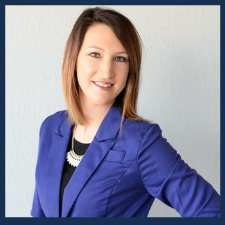 close
closeKacey Toews
Education
Fort Hays State University B.S. animal science, minor in communications
Job Overview
Every day is different, but my main responsibilities include establishing client relationships, delivering exceptional customer service and promoting additional service offerings to my clients. We have a wide range of Talent Solutions products so establishing relationships and identifying each customer unique needs are an important part of my role. I strive to help promote a new realm of careers and move the industry forward. Our clients at AgCareers.com trust us to deliver the next innovative solution for their talent needs.
Most Beneficial Class
I would say that my organizational communication class has been my most beneficial class. It helped me learn how to communicate with those of different personalities and backgrounds.
What classes do you wish you would have taken?
I wish I would have been able to take more leadership classes. Agricultural majors are based on more technical classes rather than how to work with others and communicate with them. I have found in the business world, you have to be able to work with a realm of different people.
Career Path
My focus was to do something within ag communications. I graduated from college in December 2016 and started with Triumph Foods January 2017 as their HR specialist. Even though I never thought about going into HR I now realize how much that experience truly taught me. Within my year with Triumph Foods I made many connections, one of which was through Ag Careers. A sales position with Ag Careers came about, and at that time I was worried about taking on a sales roll, considering I did not have much experience with that. I have wanted to work for Ag Careers since college and with all my experiences combined, I knew this position would be something new and potentially a great fit. I have now been working for AgCareers.com as the Talent Solutions Sales Specialist since February 2018 and I absolutely love it. Networking really paid off and I have learned to not be afraid to jump into something that is a little out of your comfort zone!
Average Day
I get into work at 7 am and will leave the office around 4pm Mon-Fri. I do not work weekends unless I am traveling. I usually attend many events as I try to be present within our industry along with our customers. I also am traveling to many campuses and making campus visits as often as I can!
What do you wish you would have known?
Looking back, I now realize how one-track-minded I was. If I were able to go back, I would tell myself to be more open minded and to try new things that maybe were a little out of my comfort zone.
-
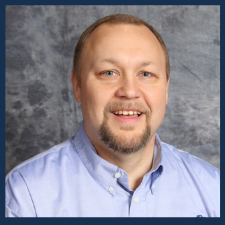 close
closeTom Brand
Education
University of Missouri, B.S. general ag with an emphasis in communications I attended college for 3.5 years and then was offered a job with Brownfield Ag News before finishing college. It was a fantastic opportunity at the right time.
Job Overview
An overview of what my job consists of would be a mix of marketing and farm broadcasting. We value that our broadcasting not only touches the farm industry consumers but also the non-farming consumers. We focus on professional development along with leadership programs that involve anybody who is interested. Separate from the association, we have a foundation that is called NAFB which offers scholarships to college students and assists member stations and networks with their internship programs. Farm broadcasters can get continuing education grants to help them with college classes, international travel, continuing education opportunities and/or state leadership programs. Within this foundation we have a scholarship program, continuing education grants, and internship grant programs. The foundation also recognizes farm broadcasters broadcasting excellence through an award called the Doan. The NAFB is also exploring ways to assist students attending our annual convention in Kansas City with professional development workshops.
Most Beneficial Class
A couple classes that really stand out to me that have benefited my career would be acting for non-majors and voice articulation. I really enjoyed the acting for non-majors, it got me out of my comfort zone and taught me a lot about how to interact with others. The voice and articulation class helped me with learning how to control my voice and at what level was appropriate to speak.
What classes do you wish you would have taken?
I wish I would have been able to take a foreign language class. Being in another country and having that language barrier makes traveling difficult.
Career Path
I have been a farm broadcaster for 19 years all together and that has given me a fantastic opportunity to meet people and make connections. I then started a fundraiser that is an antique tractor drive called Show-Me Tractor Cruise. While I was heavily involved, my family had a large part in helping with this event along with the committee for the fundraiser. The tractors drive around 45-75 miles a day for kids who have cancer to go to a summer camp. I ended up doing a lot of the PR for this fundraiser. I did all of the web page programming. Later, I then took on a part-time job as the director for that summer camp and then got involved with the financial side. Then in 2011, I became the executive director for NAFB. Although I had a lot of experience within the industry my first year was a learning curve. I still to this day learn something new every day.
Average day
Everyday changes because of all the activities that we are involved in. I travel more than I had originally expected coming into this position but, it provides me with tremendous opportunities. I try to meet with our members as regular as possible. My normal days usually are from 8am-4:30pm, there are some weekends that I travel but that is usually seasonal.
What do you wish you had known?
I would say that something that I wish I had known, would be knowing how to manage people on that next level. I have 750 members so together, that is a whole lot of different personalities. Understanding how to communicate and handle each personality is a key objective. As I took this position I had to train myself into a different mindset and learn how to manage HR.
Advice for students
The more exposure, the more opportunities in your career, the better off you will be. Internships are a fantastic opportunity to get hands on experience, I would say a combination of achievement and practical experience is an optimal goal.
-
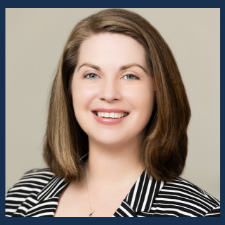 close
closeJulia Debes
Education
Kansas State Univeristy B.S. Agricultural communications and journalism; minors in animal science and industry, speech communication studies and international agriculture
Florida State University, M.S. Media Studies
Job Overview
I am the communication manager for the U.S Grains Council. The USGC is the export market development organization that represents a variety of assorted products including: corn, barley, sorghum, ethanol, dried distiller grains or DDG’s and then a few other by products from corn as well. In my day to day world I am responsible for our weekly newsletter, website and duties related to our meetings. I have played a key role when it comes to putting together powerpoints, sending out press releases, and doing some coverage for our teams. I manage but do not consistently do the social media efforts. We have a social media contractor that schedules everything and posts it. I do help guide and dictate that strategy.
Most Beneficial Class
I would honestly say my writing classes were the most beneficial to my current career. I took Ag Mag the class taught me how to think about visual elements, and pulling graphics, and photography and how to bring all of those together.
What class do you wish you had taken?
I would say that I wish I would have taken an agronomy and statistics class. An agronomy class would have benefited me so that I would have a better foundation in agronomy for my work in the grains industry. Within the type of work that I do I have a lot of interaction with folks that are crunching market data. Part of my job is to help put that data into words. I was a little bit behind when it came to doing some of the actual number deciphering.
Career Path
I did an internship at the Florida State Capital in Tallahassee for then, the majority leader, Adam Hasner. My primary job was ghost writing.
I then moved down to South Florida in Boca Raton and worked on his re-election campaign during the same time as the presidential election year.
My husband and I moved to Ohio and through connections I started working for a gentleman who runs field operations for more issue type of campaigns in Ohio. My first job with him was to cold call companies in Ohio and try to get them to sign a clean energy pledge. I then received the opportunity to be more involved in the production of op-eds or letters to the editor. I moved on and ended up getting a job in the Ohio Auditor Estates Office. I was the deputy press secretary, I represented half of the state of Ohio.
After Ohio we moved to Washington D.C working for U.S Wheat Associates. I worked there for four and a half years in Washington D.C. I helped coordinate an entire festival that brought in wheat weavers and some of the state wheat commission.
We are the 5th generation on our family farm in central Kansas. I continued with U.S Wheat Associates doing some spot projects and I ended up creating my own communications small business firm which did well. I did a lot of various projects for a lot of state organizations and national organizations. I then applied and received a job with U.S Sorghum Association.
Then, an opportunity to work for U.S Grains Council became available. I am now back working on trade on behalf of both the sorghum and corn industry.
Average day
As a remote worker I always have my phone and computer with me. My morning starts out going through my phone and scanning through emails. Since I am working for an organization that is headquarter in the eastern time zone, by the time I get to my desk at eight o’clock they are already midway through their morning. I then move into either meeting throughout the day or major projects or a mixture of both. The rest of my day is editing stories, getting stories out to review, and then adjusting to the meeting throughout the day. My day ends somewhere between 4:30 and 5:30. Because we work internationally, I do keep tabs on of my phone just, so I know if there are any breaking news alerts.
What do you wish you would have known?
I would advise to take statistics or more agricultural economic classes. Even if you hate math. The ability to synthesize numbers into words is an invaluable and underappreciated skill in what we do.
Advice for students
I would say do not lose hope. It took me eight months after I graduated with my masters to get a full-time job. In the moment the frustration with finding a job was difficult. I thought I had done all the right things.
-
 close
closeMary Emma Young
Education
George Washington University, B.A. English, minor in history
West Virginia University, M.S. Integrated Marketing Communications, graduating in 2022
Job Overview
I am the Senior Communication Director at Pet Food Institute in Washington D.C. PFI represents dog and cat food manufacturers, including many of the brands you recognize and feed your pets, as well as private labels. I oversee all the communications and am the Communications Department of one. I work on our social media accounts, our website, our graphic designs, and work with our member companies directly. PFI staff is a small team, so we have our hands on a lot of different projects.
Most Beneficial Class
Taking mostly classes in literature and history, I really enjoyed what I studied and it made me excited to learn more. I developed a lot of the core skills with my major, including writing and analytical thinking. A public relations class my senior year made me realize my goal career path. It helped me understand the concept of public relations and applying it in the workplace.
What classes do you wish you would have taken?
I do wish I had taken more classes that gave me on-the-job training, though there is so much value with first jobs. That is where you learn real-world situations. That is why you should consider internships like a class, and an opportunity to gain experience and relationships.
Career Path
Before graduating in 2007, I had a few internships in marketing and communications. One was a magazine internship and one was for a small tech startup company. My first post-college job was in Washington D.C. for a public relations agency. It was a great first job at a small agency. I learned a lot of basic skills and had excellent mentorship. Like many at the time, I was impacted by the 2008 financial crisis and eventually landed a new position as a communications assistant at CropLife America. There I learned about U.S. agriculture and gained a new appreciation of the agribusiness sector, and also learned how to talk about the tough issues. I was at CropLife America for six years and left as communications director. I then went to PFI, where the association was completely rebranding and rebuilding with its first dedicated communications staff. It was a great opportunity to take on something new and help build something from scratch. I just recently celebrated 4 years at PFI.
Average Day
No day is the same when you work in communications and a lot of projects pop up throughout the day. I handle our media accounts, take external calls, write blog posts and work on managing multiple issues. Everyone has a different way to manage their project list and, as I do a lot of multi-tasking, it’s important to figure out what works for you. At the beginning of the day, I sit down, think about what I accomplished yesterday and define what needs to get done today.
What do you wish you would have known?
I wish I would have known that is okay to make mistakes and learn along the way. Often as students, it is drilled in us to make everything perfect. I struggled with recognizing that not all of us can put out perfect product all the time. I Often try to follow the motto “Don’t let perfect get in the way of done.” Put trust in yourself and you will be able to learn along the way.
Advice for Students
As students think about what they’re studying and classes they’ve taken, don’t be afraid to stretch yourself to apply for that internship even if you don’t feel prepared. Study what you love and it will lead you to the perfect job. Have faith, focus on your tasks, and be bold in your decision-making.
-
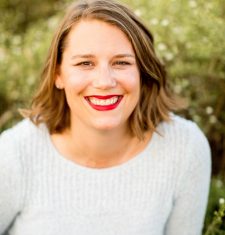 close
closeMeagan Cramer
Education
Kansas State University, B.A. Public Relations
University of Denver, M.S., Applied Communications
Job overview
As the Director of Marketing and Communications at Kansas Farm Bureau, I manage and direct all communication and marketing for Kansas Farm Bureau, Kansas Farm Bureau Health Plans and Kansas Living. In addition to managing the three sectors above, I oversee social media, tv, radio, printed publications, electronic newsletters, and press releases. Within the communications division at Kansas Farm Bureau, we currently have a staff of four full-time employees and typically have two interns throughout the year.
Most beneficial class
During my time at K-State, my most beneficial class was Editing and Design (MC241). I had a fair amount of design experience prior to MC241, but the editing side pushed me to learn more of the editing process and its fundamentals.
What classes do you wish you would have taken?
A few classes I wish I would have taken were more political science and agriculture economic classes.
Career path
My first job after graduating was working as the Assistant Coordinator for K-State’s Master of Agribusiness graduate program for three years where I was initially introduced to agriculture. After working as the Assistant Coordinator for the Master of Agribusiness program, I transitioned at K-State to an Academic Coordinator for the Mechanical and Nuclear Engineering department. Shortly after, Kansas Farm Bureau listed a communication division position that I could not pass up. When I first began working at Kansas Farm Bureau in 2006, I served as the Media Specialist where I managed publications such as Kansas Living and Farm Leader Letter, wrote stories, shot pictures, edit press releases and more. Since then, my role as shifted to the Communications and Marketing Director.
Average day
Each day is incredibly different and diverse because each communications department team member, works on specific projects. I strive to look at the bigger picture of the organization while strategizing our process and actions. Often my schedule is full of meetings, while other days I may be on the road traveling talking with producers and communicating across the state.
What do you wish you would have known?
Looking back, one thing I wish I would have known was the value of networking. It was not until I graduated that I began to regret not making more connections and networking during my time at K-State.
Advice for students
Make sure you take diverse internships because they provide excellent experiences and networking opportunities. Take all the learning opportunities possible to expand on your knowledge for all aspects of communication and the industry in general.
-
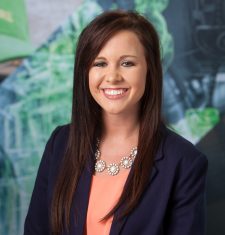 close
closeJacqueline Clawson
Education:
Kansas State University, B.S. in Agricultural Economics, B.S in Business Marketing, Certificate in Professional Strategic Selling
Job overview:
I am a Marketing Specialist Instructor for John Deere & Company. In this role, I serve on the training delivery team to provide training to dealers across the globe to enable them with the knowledge and skill set to sell our equipment and run their dealership as effectively and efficiently as possible.
Most beneficial class:
The most beneficial classes that I took while at K-State were Contemporary Issues in Global Food and Agricultural Systems, Agricultural Market Structures, and Crop Science. These classes prepared me to have a greater understanding of marketing and economic issues in agriculture as well as how to apply this knowledge in real world scenarios. Crop Science gave me additional foundational knowledge of agronomy to be able to better understand needs of our customers to then form our marketing messaging around.
What classes do you wish you would have taken:
While being a dual major in Ag Economics and Marketing, my focus was more on the numbers and creative side verses science. I wish I would have taken more agronomy classes so that I could better understand the entirety of each production system for the farmer and all the aspects that fully go into many of their farming decisions.
Career path:
I had two different John Deere internships while I was in college. My first internship was in Des Moines, Iowa where I was based out of John Deere’s Intelligent Solutions Group and another in Moline, Illinois where I worked in Product Line Marketing for the X9 combine rollout at Harvester Works. Between these two internships I also had an internship with CoBank working as a Regional Agribusiness Credit Intern. While I greatly enjoyed each of these internships and was challenged to learn and grow through each opportunity, I knew my passion resided in a marketing/sales space verses solely financial. I established these relationships for my internships through being involved in the College of Agriculture and College of Business while at K-State. After graduation, I started in the Marketing and Customer Support Development Program with John Deere in Olathe, Kansas at our U.S. Ag Marketing Center. I have since moved into a full-time role still out of the Olathe office in my current position.
Average day:
Every day is different, but one of my main roles is to instruct dealers across the U.S.to provide them with the knowledge and tool-set to better manage their dealership to the best of their ability all while serving our customers by selling equipment to meet their needs. I also work with our Strategic Accounts Business Division to establish training needs for those who sell our equipment but are not a typical dealership. Finally, I work on several additional projects to measure our delivery performance to ensure it is meeting the needs of dealers and create promotional videos to send to dealers and field teams as updates and clarification to training requirements occur.
What do you wish you would have known?
While getting good grades in college was very important to me, I worried far too much about this. The organizations that I was involved in through the College of Agriculture and College of Business, the connections and knowledge I gained through being involved, and relationships with professors and advisors have continued to make more of an impact on my future than my GPA did.
Advice for students:
Agriculture, if you haven’t learned already is truly a small world! Relationships are vital as agriculture is such a relationship-based community. Get out there and make those connections but also take advantage of your time at college when you can learn from so many experts in their specific ag field. Try to take as many ag classes as possible as our industry is constantly overlapping and the more well-rounded background you have, the better!
-
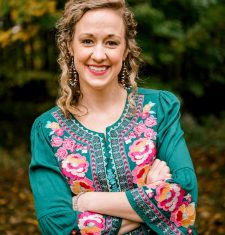 close
closeStacie McCracken
Education
BS in Agriculture from The Ohio State University, 2015
Major: Agriculture Communication
Minor: Agribusiness and Applied Economics; International Studies
Job overview
I am the founder and lead consultant of McCracken Co., a modern marketing and communications agency for agricultural brands and businesses. I am also the founder of Coalesce, a community to help women start and grow a business that aligns with their lives.
Most beneficial class
The most beneficial class I took at OSU was an advanced writing class in the journalism college. This class challenged me learn to AP Style and clearly articulate messages in a way that I had never been challenged before. It was a very hard class, but I am a better writer because of it.
What classes do you wish you would have taken
I wish I would have taken a class or two on agronomy or animal sciences to help me better understand basic principles in those fields. As a communicator, we need to clearly communicate to a target audience on behalf of a client. When I am writing for a farmer audience, I will sometimes second-guess myself (or need to Google) growth stages or meat cuts – which is embarrassing to admit as a farm kid myself!
Career path
After college and several impactful internships, I served as the communication director for Ohio Corn & Wheat. In 2017 I started McCracken Co. and launched Coalesce in 2020.
Average day
After getting my kids to daycare, I start my work day about 7:30am by checking email and our project management tool. McCracken Co is a remote team, so I work from my home office. The average day consistent of a lot of client meetings, developing communication strategies and supporting my team.
What do you wish you would have known?
As an entrepreneur, I wish I understood and enjoyed accounting more. I know enough about balance sheets, Quickbooks, and profit and loss statements to manage, but I heavily rely on my accountant to manage the financial side of business ownership.
Advice for students
- Study abroad! There is so much to learn by visiting other cultures.
- Get lots of internships. Internships are the best to figure out what career path you want to take and develop a network.
- Fill out all the scholarship applications you can find! College can be expensive and student loans are difficult holes to dig out of. So many scholarships go unclaimed every year because no one applies. Treat scholarship applications like a part-time job and submit applications to any and all scholarships that you may qualify for.
Career Profiles
Science and Industrial Uses
Those in the science sector typically hold positions such as production manager, grain elevator, industrial sales engineer, miller, systems engineer and plant manager. They often work for feed and cereal companies, ethanol manufacturers and other industries.
They often specialize in areas such as biology, chemistry, physics, engineering and agriculture. Common degrees in this field include milling science and management, biology, chemistry, feed science, veterinary medicine and chemical engineering.
-
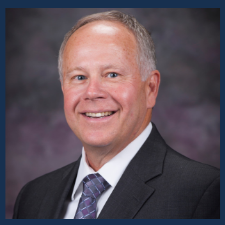 close
closeKen Burton
Education
Kansas State University, B.S. Biology
Kansas State University, Doctor of Veterinary Medicine (DVM)
Job overview
I am the program director for the National Agriculture Biosecurity Center (NABC) at Kansas State University along with the Director of Research Project Coordinator for the Biosecurity Research Institute at Kansas State University. NABC is a center at Kansas State University where most of our focus is on livestock foreign animal disease emergency response where we do planning, training, and educating. The Biosecurity Research Institute is a bio safety level 3 research laboratory. We work on livestock diseases that have the potential to cause tremendous economic impacts or a high number of sickness or death in livestock.
Most Beneficial Class
I feel like my communication or speech class was the most beneficial. Those classes have served me a great amount within what I do now. Everything that I do is associated with communicating. I communicate with various groups and try to bring those groups, who have varying perspectives in certain areas of interest, together to collaborate.
Career Path
For just under 30 years I had a rural veterinary mix practice out in Lyons Kansas. I did companion animal and production animal medicine and surgery. I had a special interest in transboundary animal disease along with biosecurity; I did some extra training and took some online classes while still in practice. The opportunity opened up for me to do some work with the National Agriculture Biosecurity as a consultant then turned into the position that I have today at Kansas State University which I started at in 2010. Extending from my responsibilities that I had within NABC the opportunity to also have a position and responsibilities with the Biosecurity Research Institute here at K-State came about.
Average Day
One of the things that I’ve always enjoyed about veterinary practice which has also followed through in this position, is that my job varies from day to day. No day looks the same and so my schedule fits accordingly. Some mornings I will come in very early and somedays I will leave really late, along with possibly working on the weekends. It is all based on project needs, potential to present at meetings or with diverse groups, along with working with the stakeholders that have interest in the projects we do or the research that is being done. The flexibility is something that I like but it is also something that is demanded by the position that I am in.
What do you wish you would have known?
I have learned through the process, but I wish that I would have been even more aware, is the importance of networking. Collaborating and interacting with other people is of extreme importance and I think that sometimes it is hard to keep that in mind. It is critical to success in about everything one does, but I can vouch for how important it is for veterinary medicine along with both positions that I am in right now. Networking helps with being able to bring groups together to communicate to be able to work together on various projects.
Advice for students
The best advice that I could give to someone is to always keep your eyes open for opportunities. Do not be afraid of an opportunity that you may not think at that time totally fits in your area of interest. Through your career path you really do not know what doors will open, those doors can lead you to something in your area of interest which you may never of known about if you had not made those connections.
-
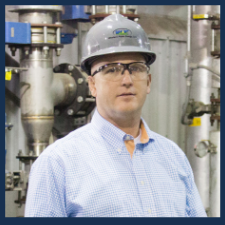 close
closeDerek Peine
Education
Kansas State University, B.S. chemical engineering
Job Overview
I’m the CEO of Western Plains Energy, LLC (ethanol production facility) in Oakley, Kansas. My role includes responsibility over the entire operation including areas such as production, sales, grain procurement, safety, and financials. In the end, everything falls underneath my responsibility.
Most beneficial class
I would say math and science courses. While I don’t have a particular class, having a solid understanding of science and engineering helps me understand the production side, helps me with troubleshooting problems, and provides me with a solid basis for investigating new technologies and potential projects.
What classes do you wish you would have taken?
I wish I would have taken more business classes. I have thought many times over the years that I should go back and get a Master’s in Business Administration. Unfortunately, I have just haven’t ever dedicated the time to do it.
Career path
I graduated from K-State in 1997 and spent eight or nine years at Cargill managing different unit operations. During those years I learned how to manage people, how to manage specific unit operations, how to improve efficiency of those unit operations and how to look at a project with business sense. Then I worked in the ethanol industry for the next three to four years focused on the startup of a new ethanol company and on the engineering and construction side of building new ethanol plants. The opportunity to participate in starting a brand new company was very rewarding; there were so many things to learn and figure out. After that, I went into some consulting roles within the engineering and project development side of the ethanol and broader renewable energy industry. In 2012, I was given the opportunity to move to Australia and work in an ethanol plant there. It was an incredible experience for which I will always be grateful. In 2013, I came back to the United States and started working for Western Plains Energy.
Advice for students
Get involved in outside activities and work really hard to get internships. Don’t be afraid to contact many different companies and ask for internships even if they aren’t advertising. Come with more than just a resume, reach out and promote yourself with an idea of how your skills can benefit that specific company and their needs.
-
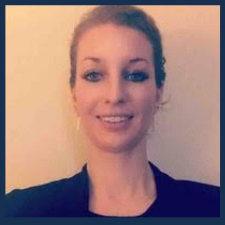 close
closeCassie Schneider
Education
Kansas State University, B.S. feed science & management (Biofuels Option)
Kansas State University pursuing a Masters of Agribusiness
Job Overview
Scientist, Technical Service Biofuel at Novozymes North America, Inc.
My role as Field Scientist is to promote products and to be technical support to ethanol plants in my territory, even if they use competitive products. I am able to help trouble shoot issues and make recommendations about processes and procedures. Fermentation is my specialty area and I might make recommendations related to dosing of ingredients or various settings.
Most Beneficial Class
Overall, picking a degree in the College of Agriculture at K-State helps with any agriculture career path you take. They do set you up from the beginning with an Ag Science 101 class to line out what all careers are out there and to expose students to possibilities that they don’t realize exist. I didn’t realize at the time it would be that helpful, but they have really enhanced it into a great class over the years. I actually get to go back and speak once a year in the fall semester to advocate for the ethanol industry and show undergrads that there are options in biofuels that they may have not yet considered.
What class do you wish you had taken?
I attended Hutchinson Community College before transferring to K-State and was able to get the majority of my science and math classes out of the way there, which was a great idea. At K-State, I wished I would have taken more agriculture economics classes. I had the general ag econ class I had to take for my major and actually disliked it at the time. I have since had the same teacher for an ag econ class in graduate school and really enjoyed him as a teacher this time around.
Career Path
I previously worked for Kansas Ethanol, LLC and Novozymes was one of their vendors. Kansas Ethanol, LLC has used Novozymes products and was one of the first plants to use their new yeast product. Because I worked with them as a vendor, they were in my network and I was comfortable with their culture and had a good impression of them as a company. That made it attractive to consider a job offer from them.
Having almost 5 years’ experience already in the ethanol industry at the plant level and being back in school to get my master’s was a huge advantage for my current role at Novozymes. I have found there are huge opportunities in the industry for those who have plant level experience. Having knowledge of just the daily ins and outs of ethanol production and the background of the fermentation process have helped in my everyday work for my current job.
Average Day
I have a unique situation in that I actually have a home office and then travel as well. Therefore, I kind of set my own hours while I am at home. Then I travel as needed to accommodate my customers and company trips. I usually start work around 7 am as that is what I did prior. My office work tends to be more data analysis, reports, and communication to customers. And the normal email, phone calls, check in with managers, those sorts of things.
Travel days are quite normal, we sell enzymes and yeast to the ethanol industry, so it is very common for me to travel to a plant to help with a trial that we are doing with a product there.
Most often, I work with our Biofuels Technical Team. In this role, I support ethanol plants in our Kansas and Missouri territory to learn their processes, understand their challenges, and deliver products and services from Novozymes wide portfolio. Weekend work very rarely happens and is not encouraged.
What do you wish you knew?
In this industry, we are always growing and consistently learning. I wish I knew more about plant mechanics and more of the details of what plant and production managers deal with on a daily basis. I know the basic fundamentals and enough of the language to be dangerous, but I have more to learn there in my opinion.
Advice for students
I encourage knowing as much as you can about the industry prior to being employed, but don’t be afraid to go in with little to no knowledge. Even some of the most knowledgeable and highly accomplished individuals in the industry are still learning new things every day.
It is exciting to be a part of such a diverse industry that is always changing and improving pathways to move forward!
-
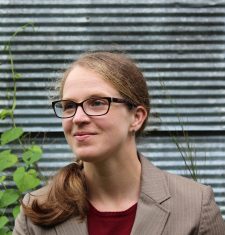 close
closeMaria Bowman
Education
My undergraduate degree is in Environmental Science from Juniata College, and my Master’s degree is Forestry from Virginia Tech. I used my time at Virginia Tech to get some more economics courses under my belt since I was pretty sure I eventually wanted to get a Ph.D. in agricultural economics. I worked a couple of years after my Master’s, and then went on to get a Ph.D. in Agricultural and Resource Economics at the University of California, Berkeley
Growing up in the Shenandoah Valley of Virginia, I was always very interested in how farming and agricultural conservation practices related to water quality—which was what led me to study biology and environmental science. In college, though, I studied abroad in Ecuador where I got really interested in issues related to tropical forest conservation. I also learned that most of the issues I was interested in were truly economic issues…which is what eventually led me to study more economics. For my Master’s and through my Ph.D., a lot of my research focused on the relationship between agriculture and deforestation in Brazil.
Job overview
I work in the Conservation and Environment Branch at the Economic Research Service at the USDA—where we collect data and study how U.S. farmers are using soil health and conservation practices, and how federal programs (like the NRCS EQIP and CSP programs) affect farmer adoption of practices like no-till and cover crops. Most of my job is doing research, but I also serve as a “Conservation Liaison” for ERS’ conservation research, which means that I represent ERS’ conservation work to USDA and external stakeholders, and incorporates stakeholder priorities and feedback into the research process. This helps us make sure that we are doing research that is policy-relevant and has impact.
Most beneficial class
Probably the most valuable thing I did in terms of my career path was to study and live abroad at different points in my education and career. It taught me a lot about interacting with people who have different backgrounds than me, and also to constantly challenge my assumptions about the world.
Some of the most valuable courses I took were ones that had either a primary or accidental focus on improving research, writing, or presentation skills. I took a conservation biology class my senior year of college that focused on applied research, and where we actually had to learn about how to consider stakeholder input and practice giving presentations. Also, I learned a ton serving as a graduate student instructor when I was in graduate school—learning and practicing how to facilitate a good discussion was hugely helpful.
What classes do you wish you would have taken
I wish I had taken some psychology and economics classes earlier in my undergraduate years—I think I would have figured out more quickly that I was interested in the social as well as the biological sciences. I think a public speaking class might have helped me with some of my presentation anxiety earlier in life.
Career path
-B.S. in Environmental Science (studied abroad in Ecuador my Junior year)
-M.S. in Forestry
-2 years serving as a consultant/researcher/program assistant at the Woodwell Climate Research Center, where I lived and worked in Brazil, and also did field work in Mozambique
-Ph.D. in Agricultural and Resource Economics, UC Berkeley
-1.5 years as Sustainable Livestock Economics Fellow at the Natural Resources Defense Council
-4 years at USDA ERS as a researcher in the Conservation and Economics Branch
-2.5 years as Lead Scientist at the Soil Health Partnership of the National Corn Growers Association
-Now, Research Agricultural Economist and Conservation Liaison at USDA’s Economic Research Service
Average day
I spent a lot of time on the computer, and on the phone! I spend a fair bit of time writing and analyzing data—facilitating meetings, talking with research collaborators. Often, my work involves giving presentations or serving on panels. If I’m lucky, I’ll occasionally get out on a farm to talk with farmers or learn about conservation practices on the ground.
What do you wish you would have known?
I wish I could tell my younger self to speak less and listen more—or that it’s ok to take time to choose your words carefully!
Advice for students
Don’t stress if you haven’t figured out what you want to do next in your life—or 5 or 10 years from now. Follow your interests, and try to have conversations with the people you meet to figure out what drives them to do the work they do, and what their jobs are like. That will help you figure out if you can see yourself in those roles in the future. If you can “see” yourself in the job, it will make it easier to swallow some of the courses that might be required but less fun (like math)
The views expressed are those of Dr. Bowman and do not necessarily represent the views of USDA or its components. It is not an endorsement of the activities of any person or entity.
Career Profiles
Technology and Precision Agriculture
Those in the technology and innovation sector typically hold positions such as field test analyst, engineer and entrepreneur. They often work for equipment companies, manufacturers and agricultural service providers.
They often specialize in areas such as technological advances, computer software, management and engineering. Common degrees in this field include agricultural economics, agricultural technology, agronomy, business and engineering.
-
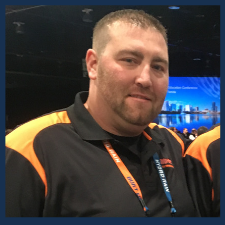 close
closeJohn Teeter
Education
B.A. Pastoral Studies with leadership development
M.S. Christian studies with leadership development
Job Overview
I am Director of Operations and Branch Coordinator of the Ulysses location. My day to day job consists of many different layers. I work on new product development and work with each location’s branch manager to make sure that they are taken care of. I’m there for them to answer any questions they may have about their employees, equipment, jobs, service and any other need they have. I also go and visit customers to see what we can do to help them and better serve them as a business.
Most beneficial class
I would say the most beneficial class I took was on ethics in leadership and the philosophy of leadership behind the ethics. It has helped me to look at the whole picture of the business and realize how ethical leadership impacts ethical business. If you have people who are ethical in business you’ll have good relationships with customers and most importantly employees, because they are your number one asset. Customers may be “always right,” but if you don’t also take care of your employees then you can’t properly take care of your customers. And that’s just doing ethical business whether it’s in the irrigation world or your personal life at home.
What classes do you wish you would have taken?
Classes that pertain to human resource development would probably be very helpful. In this job, I’m working with people, laws and paychecks. Some businesses are lucky to have a person or even a whole staff devoted to human resources, but the average small business like ours you’re left to learn that yourself. I wish I had taken more classes to help me out with some of those layers of the business.
Career Path
Teeter Irrigation Inc. started in 1977 and this year 2017 we are celebrating our 40th year in business. I was born into this business and have spent more than 20 years working in different sectors of the business. I have learned literally every facet of it over that time, and I am still learning today. I did take 10 years to work as a pastor in several small rural churches. This was a rewarding and enlightening time in my life. Through my seminary education during those years, I recognized that I could do more good outside the church walls to help people reach their full potential. I now “in my current job” get the opportunity to help over 4,000 customers, 100 employees, and many others by making an impact. I am blessed!
Advice for students
Finish college now, don’t wait until later on in life to finish. If you aren’t going to finish now, take the time to think about it long and hard before you go back so when you do go back you can give it all you’ve got. Don’t just go through the motions of school, don’t make it just another piece of paper to go on your wall. Get as much knowledge there while you can, because knowledge is what helps grow our country, lives and impacts our families.
-
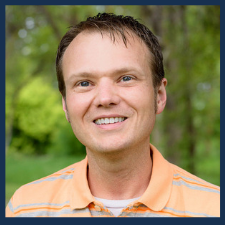 close
closeBeau Dealy
Education
Bachelor’s Degree- Life Science & Biology
Master’s Degree-EntomologyJob Overview
I wear a lot of hats- most of the work I do is in analyzing and converting data that we collect. When it involves new technology there is always work to be done. Mainly the expectations from our customers run the show and how we work.
How did you come across your current position?
My co-worker Curt and I have worked together professionally for years but the drone thing started to emerge about four years ago. Between the two of us we had the skill set to make it click.
Most beneficial class
I found my GIS classes – remote sensing classes to be very beneficial. This type of coursework is often overlooked in the ag industry. I really enjoyed these classes and they have helped me to learn how to analyze and convert the data that we collect.
What classes do you wish you would have taken?
Meteorology – know to fly commercially
Career path
I worked for Farm Service Agency- doing digital common land unit maps. I worked in city and county government in GIS. I have worked a lot on aerial maps to digitize them onto a digital format.
Advice for students
Don’t think about the Drones so much- that piece will come. The jobs may be elsewhere because this is such a quick evolving niche industry. You have to have the foundation along with it to go into this field. Find something that interests you and pick something that makes you stand out from the crowd.
-
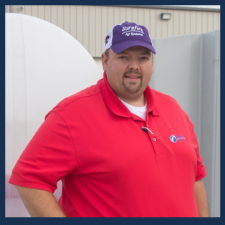 close
closeMatt Wolters
Education
Kansas State University, B.S. agricultural economics
Job Overview
I am the Marketing Manager and QuickDraw Product Line Manager for SureFire Ag in Atwood, Kansas. In the marketing arena I do all of our advertising, and brochure development and some of our online marketing. From a product stand point, we have a product we call our QuickDraw automated spray tender system and I take care of everything relevant to that product line. That includes working with and training our sales staff, working on product development with our engineering group, identifying what are the next steps in product development and figuring out where to go next with the product.
Most Beneficial Class
It’s tough to say one in particular, but one class that was very beneficial was an ag communications class. It was Ag Comm 400–essentially a communications class for non-communications majors that really focused on communications and the concepts of what you need to do in a business environment to effectively communicate.
Class you wish you’d taken
I really enjoyed my agricultural economics classes and that’s why I stayed with that major but relative to what we do at SureFire Ag, we have an engineering group and we do a lot of engineering work and product development and technology development. I wish I had pursued more technical classes as compared to agricultural economics. Over in engineering there’s days that skill wise, relative to drawing parts or drafting parts, I think skills like that would not just be beneficial but also something that I would really enjoy.
Career Path
I graduated from K-State in the spring of 2003 and spent a year immediately after working for the fraternity that I was a part of. Once I wrapped that up I went to work for a company in Atwood called the J.D. Skiles Company. They were in the fertilizer equipment business and I was there for 2.5 years and the gentleman that was my sales manager there along with myself and my brother Josh teamed up in order to start SureFire Ag.
Advice for students
There are tons of opportunities out there to get involved and find career opportunities in agriculture if you look for them. It’s very easy to only view the world of agriculture in terms of what you see in the 30 by 30 mile area where you grew up and the reality of it is that the world of agriculture is so broad and diverse.
-
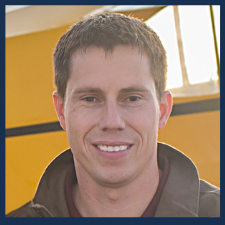 close
closeCurt Moore
Education
Bachelor’s Degree in geography, GIS
I am from a farming family. GIS- hobby RC experience- nitro aircraftJob Overview
I work more with the hardware side, all of the details about the drone and how to fly it. I am usually the go to guy with anything that involves parts and repair.
Most beneficial class
The most beneficial class I took was soils. Learning about the layers that go into the maps is very important. Being able to understand and know what that means when talking with farmers is crucial. Cartography- assembling a map and making it user ready is very important in what I am doing now. The hard biology classes to understand what’s going on with the crops & life cycle (botany.)
What classes do you wish you would have taken?
I wish I would have taken a computer programming course- it’s helpful to know when talking to software developers. You want to be able to speak the same language so that you can pass the right information along.
Career Path
Degree in geography GIS
Worked for Garmin out of Olathe
FT job with a company that does software development for appraisal and taxation systems- parcel mapping
Utility – electrical and gas utilities.
Advice for students
Be prepared to be flexible to change direction with your career/business plan. You may need another part time job right out of the bat. The drone industry is quick evolving and it is a niche industry. Farmers are really smart people- don’t sell snake oil to farmers- they’ll pick up on it real quick. Don’t overpromise what you can do. Be open and it will help you to learn as you go.
-
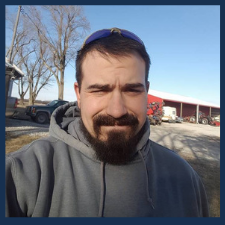 close
closeScott Spare
Education
Fort Hays State University, B.S. agribusiness
Job Overview
I’m the manager of Global support at Ag Junction.
Most Beneficial Class
I would say that public speaking has been the most beneficial class, as this is a skill I use every day.
What classes do you wish you would have taken?
I wish I would have been able to take more technical writing classes. A large portion of my job on a day-to-day basis is writing, whether that be for public letters or service documents. I could have benefited highly from some extra technical writing classes.
Career Path
I read a listing in the local paper for an entry level position with Ag Junction and decided to apply. My first year I worked as a field service representative and it was not long after that I started to move around within the company. I’ve been with AgJunction for 9 years and have held a variety of position over this time. My strong work ethic and ability to solve problems has afforded me the opportunity to move into different functions to help the company on its continued growth path. I love the variety that precision ag and my position offer, but most of all I enjoy helping producers. Being able to be resolve new issues, be on new product development teams and other opportunities like those are what make my job so interesting.
Advice for students
My advice for college students especially those wanting to go into precision agriculture is to gain experience. I would also try gaining experience in the thing you’re most interested in whether that be sales, support, or engineering. I also think young professionals should not be afraid of taking entry level positions, because those positions are a great way to get your foot in the door. Once you’re in a company, many times it can be easy to move around.
-
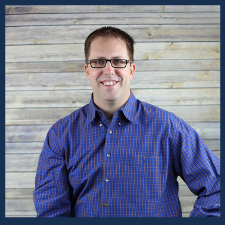 close
closeKevin Heikes
Education
Colorado State University, B.S. in Agribusiness
Kansas State University, MAB Masters in Agribusiness
Job Overview
COO of IN10T, which was founded in 2016. IN10T is a digital agribusiness that partners with farmers to compensate them for testing various equipment and programs.
Most Beneficial Class
I think my master’s degree is the most valuable asset in my career today. A lot of my time in my studies for my undergraduate degree was spent trying to just get good grades and I missed out on a lot of good, applicable information that was taught in those classes. My master’s degree helped me to understand the value of what I learned instead of what grade I earned.
What classes do you wish you would have taken?
I think it’s important that all students learn more about technology and when applicable, computer programming . Skills like these are important for young people to have a good understanding of today, especially technology and its growing importance in our world today.
Career Path
I’m originally from a cattle operation in Colorado, so agriculture has always been a part of my life. I began down my current career path through an opportunity I encountered at Colorado State in the 1990’s with John Deere and how they were investing money into technology. I got very interested in this, and began to see the value of technology. After staring IN10T today, I realize how important it is to stay close to end users of your product. Companies today are redefining agriculture objectives in technology, but remaining connected to the farmer and understanding who you serve is important.
Average Day
The time commitment of owning a business is different than working somewhere. My life, family, and business often mix together. I’m not focused on how many hours I put in, but how I prioritize my time and the quality of work I produce. Having a clear plan of what to devote my time to through the day is essential for me.
What do you wish you would have known?
There are highs and lows of owning your own business, and they’re often large. In the end, the good and the bad even out and the experience is worth it. I wish I would’ve known about the importance of teams and surrounding myself with talented people before starting my own business. We couldn’t do what we do today with our team!
Advice for students
Focus on technology and understand new innovations happening today. Don’t be afraid to be an entrepreneur to find your strengths and weaknesses as well as where you best fit into the work force.
-
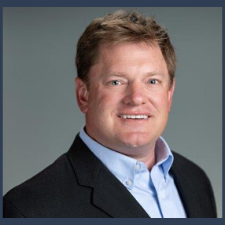 close
closeJason Madsen
Education
Iowa State University, B.S. Agricultural Engineering
Kansas State University, MAB (in-process)
Job overview
I work for John Deere within the Agricultural Division and Crop Care Platform as Manager, Business Partnerships. In this position, I work with manufacturing companies that produce complementary products to John Deere equipment.
Most beneficial class
With having an engineering background, the finance class during my master’s program was beneficial. The class provided me different ways to look at financial problems and a new perspective on business.
What classes do you wish you would have taken
During my undergrad, I wish I would have taken more classes in subjects outside of my major. Although I didn’t have a lot of extra time in undergrad, I wish I would have considered taking a more diversified class schedule to learn different skills.
Career path
I wanted to be a farmer since I was little…just like my grandpas and uncles. I grew up in the community of Geneseo, IL. I became familiar with the grain and livestock family farms in MN, cleaned and bedded hog buildings for a neighbor in IL, de-tasseled corn for Sieben Hybrids, and stacked seed bags in Wyffels Hybrids distribution center. In college, I was a manufacturing engineer intern at Centro, Inc, where I learned about the processes used for rotational molding plastic fuel tanks used for tractors. After college, I worked for GKN Walterscheid, Inc, located near Chicago, IL. The sales position at Walterscheid provided me an opportunity to broaden my understanding of North American agriculture practices and introduced me to numerous manufacturing companies that design, manufacture and sell products for the agricultural industry. I spent a lot of time traveling to areas like California, Colorado, the Pacific Northwest, and parts of the Midwest.
My first position with John Deere was in the Kansas City area as an engineer within the Frontier organization. I then transferred to the Atlanta Sales Branch where I was a product specialist, working with dealers in the Southeast part of the US to sell product. From there, I was a territory customer support manager in northern Mississippi, working with dealerships and customers on service-type of challenges. After Mississippi, I worked at Harvester Works in East Moline, IL, where our combines are manufactured. I supported sales and marketing efforts for the export combine business in China, South America, and South Africa. From there, we moved back to the Kansas City area where I supported our global partnering teams before the role I have today. Currently, I am in the Kansas City area, raising 3 kids with my wife, Tara. We also have acreage in IL where we raise corn and soybeans.
Average day
An average day for me includes dealing with many different areas of the business including new products, current products, contracts/agreements, working with manufacturing partners, reviewing business financials, coaching employees, and listening carefully to colleagues.
What do you wish you would have known?
Please keep the personal side of business in mind. Build rapport and relationships quickly and sustainably. Develop personal skills to communicate openly while listening attentively – these skills last a lifetime.
Advice for students
Find ways to set yourself apart from your peers. Look for experiences that allow you to learn, develop new skills, and grow as an individual.
-
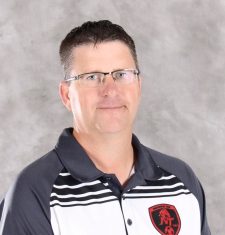 Brad Bergsma Northwest Kansas Technical Collegeclose
Brad Bergsma Northwest Kansas Technical CollegecloseBrad Bergsma
Education
University of Kansas, B.S. Environmental Studies
Job overview
With our precision agriculture program class schedule, I am focused on teaching classes in the combination of classroom, shop, and field studies. I spend most of time ensuring students learn necessary skills about technology, equipment, installing guidance systems and managing production data.
Most beneficial class
In college, the most beneficial classes were the land use and ecology courses that I took because they were relatable to the precision agriculture program at NKWTC now.
What classes do you wish you would have taken?
If I wanted to study agriculture, I would have had to attend a different university. I still wish I would have taken some more plant science and soil fertility classes. It would also be nice to have got my applicators license for field application as well.
Career path
After graduating from KU, I transitioned to Emporia State where I began taking graduate level earth science, field geology and geomorphology classes. During that time, my uncle from Kanorado, KS called to let me know he was short a hired man if I was interested in coming out to help him plant corn. I then filled up a duffle bag and have not left the Goodland area since then. After working on the farm for about 10 years, I was in the process of taking over the family operation before my father got sick and I realized I really did not want to work for 100 hours each week. Shortly after I began coaching basketball at Northwest Kansas Technical College in Goodland and that transitioned into a full-time computer job as well. At the college, we were able to invigorate more technology classes and 4-5 years ago we were able to start a precision agriculture program. The program has transitioned into a comprehensive program that provides a background in high-tech practices, equipment, and production agriculture software. I then transitioned to the Vice President of Information Technology and Athletes at NKWTC as well as one of the two precision agriculture instructors at the college.
Average day
Because we are not a typical college, at 8 a.m. we typically start classes and go until 2:30-3 p.m. in the afternoon. On a typical day I begin my day by working through any technology issues across the college, then I get into teaching precision ag courses and end the day by doing some additional computer work.
What do you wish you would have known?
While I do not regret it, being in class all the time is critical. This is less from the learning standpoint, but more important in terms of the networking and relationships you can build with your peers. Another thing is keeping an open mind during your classes, ideas, or concepts even if they are not your focus.
Advice for students
Some advice I have for students interested in precision technology jobs, is that the field is not for everyone. It is an excellent field for anyone that is interested in and I would encourage any students to be involved.
Career Connections
Faculty, staff and club leaders can request a Career Connections event to bring in professionals from the corn industry to engage with their students. Whether you’re looking to open minds in a classroom or at a club meeting, scheduling a Career Connections event can benefit you and your students.
Want to Get Involved?
Join Kansas Corn in our mission of market development, research, education and advocacy!
Contact Us